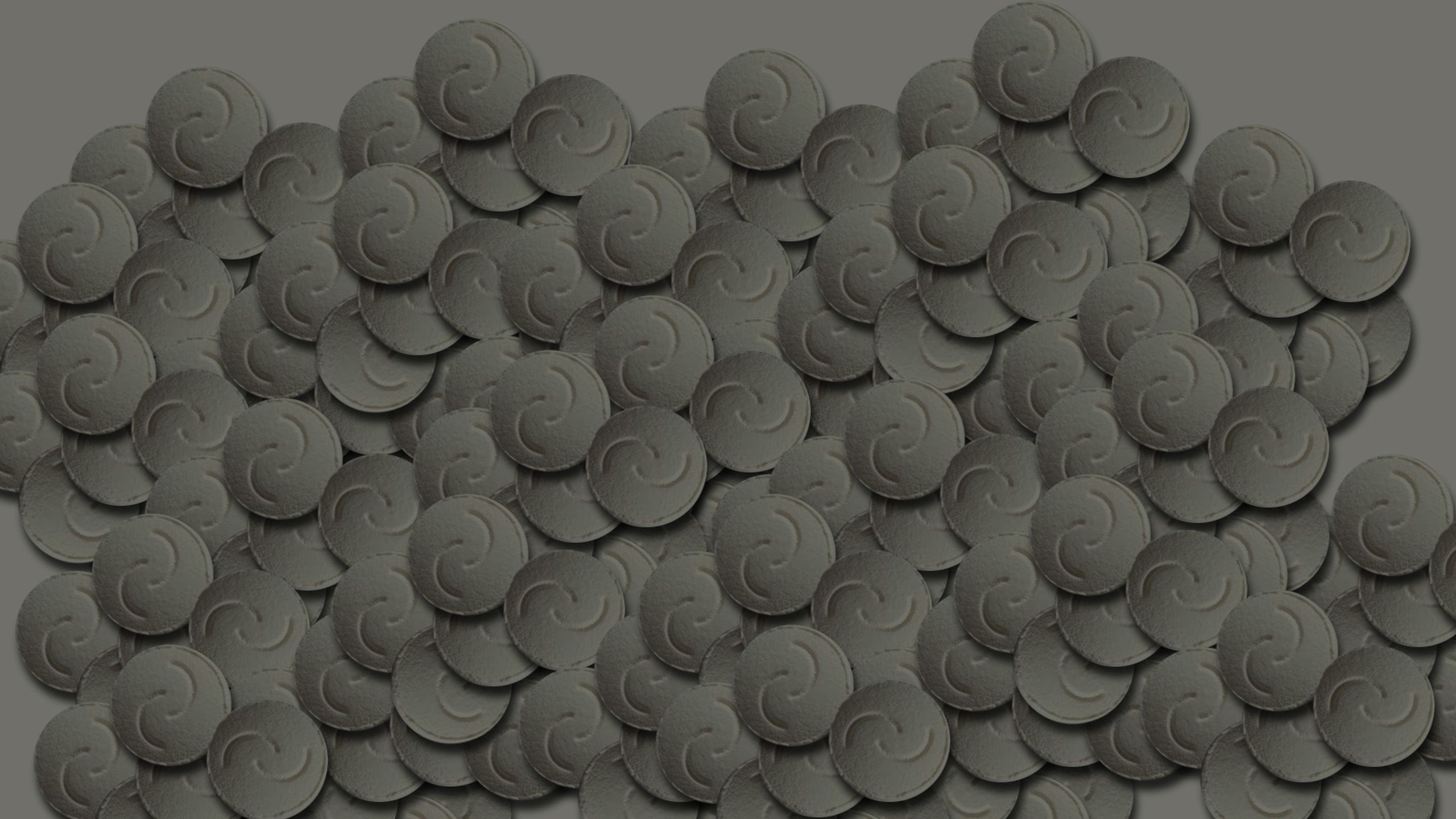The Kingdom vs Captagon
Inside Saudi Arabia's war against the drug destroying lives across the Arab world

AThursday evening during Ramadan in April 2022. Four members of a young family in the eastern Saudi Arabian city of Safwa gather in their home to break fast together.
But instead of enjoying their iftar meal, the husband and wife and their young son and daughter are brutally murdered, burnt to death by a male relative who locks them in a room and sets fire to their house.
Local media reports that as the fire catches hold the man, in his twenties, “ignored all distress calls, whether from the father or the mother, as well as the young boy and daughter, to rescue them, despite the many pleas to save them from certain death.”
Later, it emerges that the killer had been under the influence of methamphetamine, one of a variety of dangerous and addictive chemicals found in pills being smuggled into Saudi Arabia on an industrial scale and peddled to the nation’s youth, most commonly under the brand name “Captagon.”
Thanks to a combination of factors, the Kingdom has become the number-one market for the makers and smugglers of counterfeit Captagon, creating a social and public health crisis like none before.
As this Arab News investigation reveals, the primary source of this toxic drug is the rogue state of Syria, aided and abetted by malign players such as the Iran-backed Lebanese militia Hezbollah.
Recognizable by the distinctive twin half-moons logo, which gives the drug its Arabic street name, “Abu Hilalain,” Father of the Two Crescents, the pills are easy to make, readily available and relatively cheap to buy.

In the past six years, Saudi authorities have intercepted 600 million Captagon pills at the country’s borders. Unknown hundreds of millions more have found their way onto the streets of the Kingdom.
The tragedy in Safwa, in which an innocent family paid the ultimate price for an addict’s dangerous habit, serves as a grim wake-up call and a stark reminder that Saudi Arabia is in a war.
The frontline runs along the Kingdom’s borders, and through its ports and airports. The casualties can be found in its hospitals and addiction clinics. And the enemy’s name is Captagon.

A life lost, and found
“Waleed,” a 41-year-old father of four from Riyadh, is one of the lucky ones.
A Captagon addict for 14 years, more than once he tried to kill himself in a desperate bid to break the cycle of despair in which he and his family had become trapped.
But for the past two years he has been receiving treatment for Captagon addiction at a rehabilitation center run in the capital by the Kafa Society for Control of Smoking and Drugs.
Captagon, he says, “took a huge toll on my life,” but thanks to the help and support he has been given, “I’ve turned over a new leaf.”
Waleed isn’t, of course, his real name. But he agreed to talk anonymously to Arab News about his journey in the hope that his story will serve as a warning to others tempted to try the drug.
His is also a cautionary tale for parents.
Former addict, "Waleed": "I turned to stealing valuables from my home and selling them to buy Captagon."
“My Captagon abuse journey started in school — in grade 9,” he said.
“A classmate gave me a pill to try, claiming it would help me study and pass my exams with flying colors.
“After that day, I started saving my pocket money and giving it to that classmate, who would buy me more . . . I used to buy it very frequently when I got addicted.”
After completing his education, Waleed landed a job in the private sector, but couldn’t break his Captagon habit.
“I would use part of my salary every month to buy Captagon until my addiction impacted my performance, which got me dismissed.”
Even losing his job wasn’t enough of a wake-up call, and to continue feeding his habit “I turned to stealing valuables from my home and selling them to buy Captagon wherever I could find it.”
Waleed’s three-a-day habit was expensive, and “I used to allocate a monthly sum, instead of providing for my family.
“I would buy this narcotic substance and isolate myself.”
Waleed has a simple message he wants to get across to any young person tempted to try Captagon.
“Captagon is not a magic pill,” he said.
“Its effects were terrible. It made me withdraw from society and work in a strange way, without any productivity.
“It didn’t give me superpowers; only mental and physical exhaustion, as well as financial struggles.”
His addiction “also made me drift away from my faith. I couldn’t perform my prayers and isolated myself in a room.
“I withdrew from society as my mental health deteriorated.”
The drug also drove a wedge between Waleed and his family.
“Addiction made me isolate, abuse my family, and upset my parents. It led me to steal . . . It made me fail my family and leave them without enough money.
“Whenever my children or wife spoke with me, I’d respond aggressively. I had become mean and aggressive toward my parents; whenever they’d try to fix things, I’d tell them to leave the house.”
Despite the obvious shame he feels, Waleed is determined to confront the truth of the years he and his family lost to addiction, and speaks candidly of the pain he caused his loved ones.
“I became violent toward my family members. I used to mistreat and abuse my wife and children and I often disobeyed my parents.
“I was terrible toward my family and social circle. I was very toxic. This is what Captagon did to me.”
Waleed lived with the shame of what he had become, and fear of what might happen to him if he were ever caught in possession of the drug.
Constantly terrified, isolated and withdrawn, “I attempted suicide several times,” he admits.
“I tried to quit Captagon, and sought many solutions, but it was all in vain. I suffered for 14 years before I found Kafa rehabilitation center.”
Waleed’s experience is not uncommon among Captagon addicts, and reflects the findings of a study published in the Journal of Addictions Nursing in 2022. This looked at the experiences of ten Jordanian university students, aged 17-22 years, who had used Captagon in the previous six months, and found that the pills were widely seen as a way of relieving academic and personal stress.
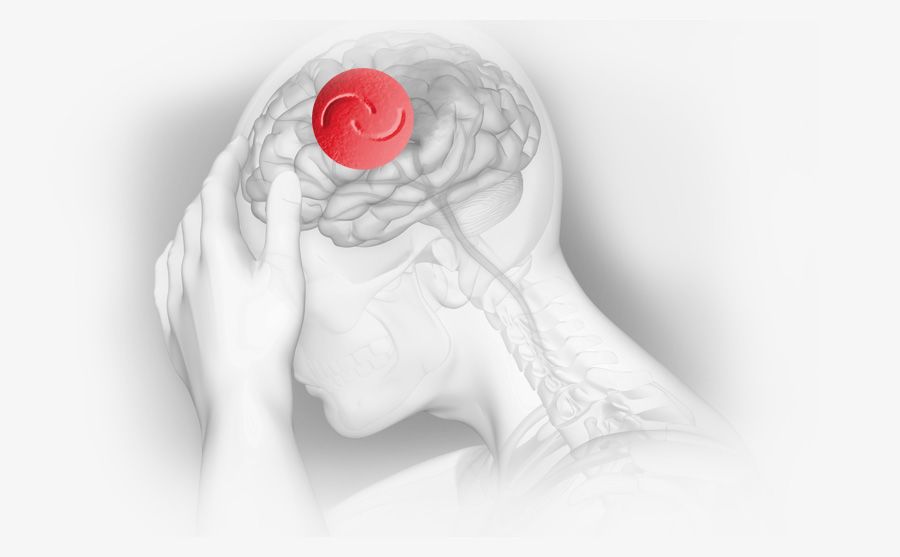
However, although “initially, taking Captagon provided participants with a sense of control . . . it did not solve their problems.” As the days passed, the students “experienced increased levels of stress, felt disorganized in a way that they missed classes, and were being socially isolated.”
Participants “finally sought community help for their problem, but this was difficult because of stigmatizing attitudes in their community toward substance misuse.”
Thankfully, addicts in Saudi Arabia have the opportunity to seize the lifeline offered by organizations such as the Kafa Society.
As as in-patient at its center in Riyadh, Waleed and his loved ones have benefitted from several “life-changing” programs, including guidance designed to help families and equip them with the support and skills they need to support recovering addicts.
It is, he says, his long-suffering wife that he has to thank for steering him back toward normality.
“I’m grateful to God and this center, in which I’ve been for 27 months. I’m also grateful to my wife, who has been very patient, and kept searching for the best rehabilitation centers until she came across family counseling at Kafa.
“She got in contact with them, and they told us to go together. We did, and it’s been a helpful journey.”
The center, Waleed says, has been a rock on which he has been able to start rebuilding his life.
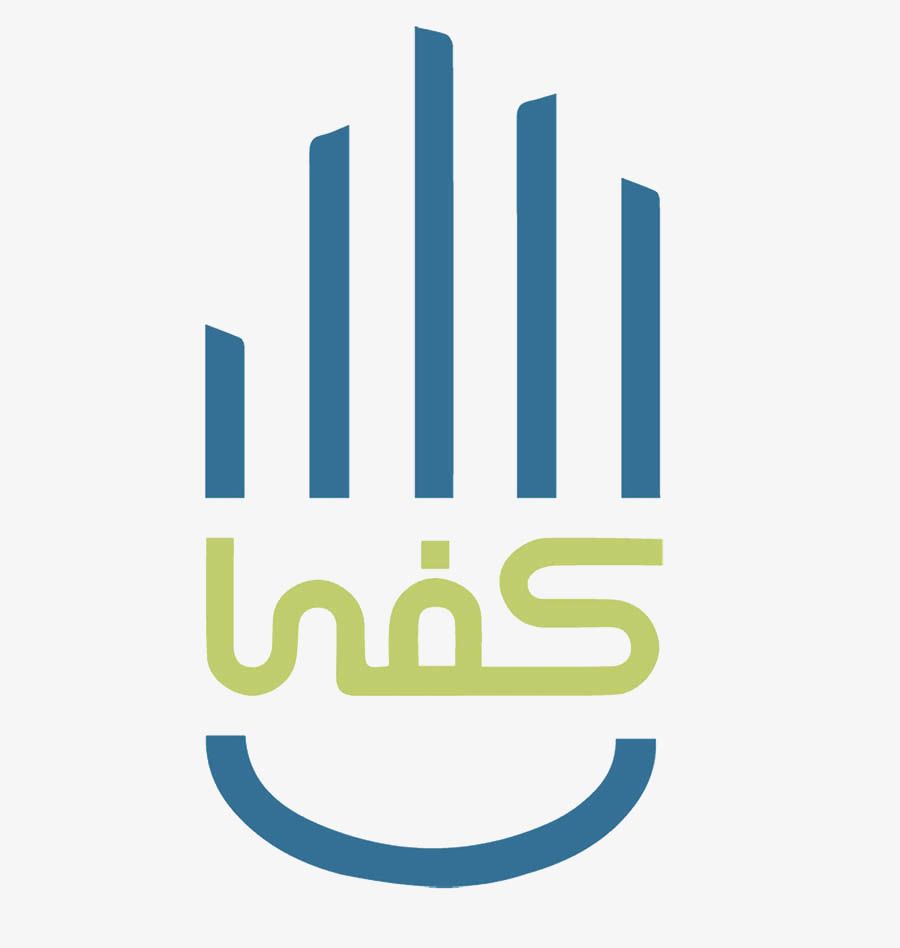
Kafa: a sign of hope for addicts in Saudi Arabia. Kafa can be contacted at https://www.kafa.org.sa/ or by phone at +966 0535844446
Kafa: a sign of hope for addicts in Saudi Arabia. Kafa can be contacted at https://www.kafa.org.sa/ or phone: +966 0535844446
“Whenever I asked for help from Kafa’s professionals, they would be available to support me, even if I call late in the night. They would come and teach me what to do and what to avoid.”
At the center, Waleed was able to enrol in a range of educational rehabilitation programs, “such as relapse prevention, life skills, reintegration into society, how to perform within my community, and how to return to the workplace.”
Thanks to the treatment he has received at the center, Waleed says that he has learnt “how to make amends with my family and find the right path to move forward.”
In short, the rehabilitation offered by Kafa “gave me the chance to reclaim my life.”
A "miracle" drug
Captagon, the trade name for a drug called fenethylline, was developed in Germany in 1961 as a treatment for a range of conditions, including attention deficit hyperactivity disorder in children, depression and narcolepsy.
Fenethylline is a combination of amphetamine, a central nervous system stimulant, and theophylline, a caffeine-related chemical known as a bronchodilator.
On its own, theophylline is used to relieve the effects of asthma and other lung diseases, by relaxing and opening air passages in the lungs. But when the two chemicals are chemically bonded, they form a so-called “codrug,” fenethylline, which is metabolized in the body to create a psychostimulant that is faster-acting than amphetamine alone.
At first, it was seen as a miracle drug, and Captagon was prescribed legally for about 20 years. During the 1980s, however, in the face of increasing evidence that it was addictive and could cause multiple unwelcome side-effects, it was banned by medical authorities around the world.
Captagon, says Ghassan Asfour, medical director at Kafa in Riyadh, “stimulates the nervous system and affects vital body organs, including the brain.
“It causes strokes, memory loss, and nerve damage, auditory, visual and sensory hallucinations.
“It also negatively impacts cardiovascular health, leading to increased heart rates, and high blood pressure, as well as damage to liver and kidney functions.”
Users experienced a range of problems, including lethargy, sleep deprivation, suppression of appetite causing malnutrition, blurred vision, breathing difficulties, irregular heartbeat and gastrointestinal symptoms.
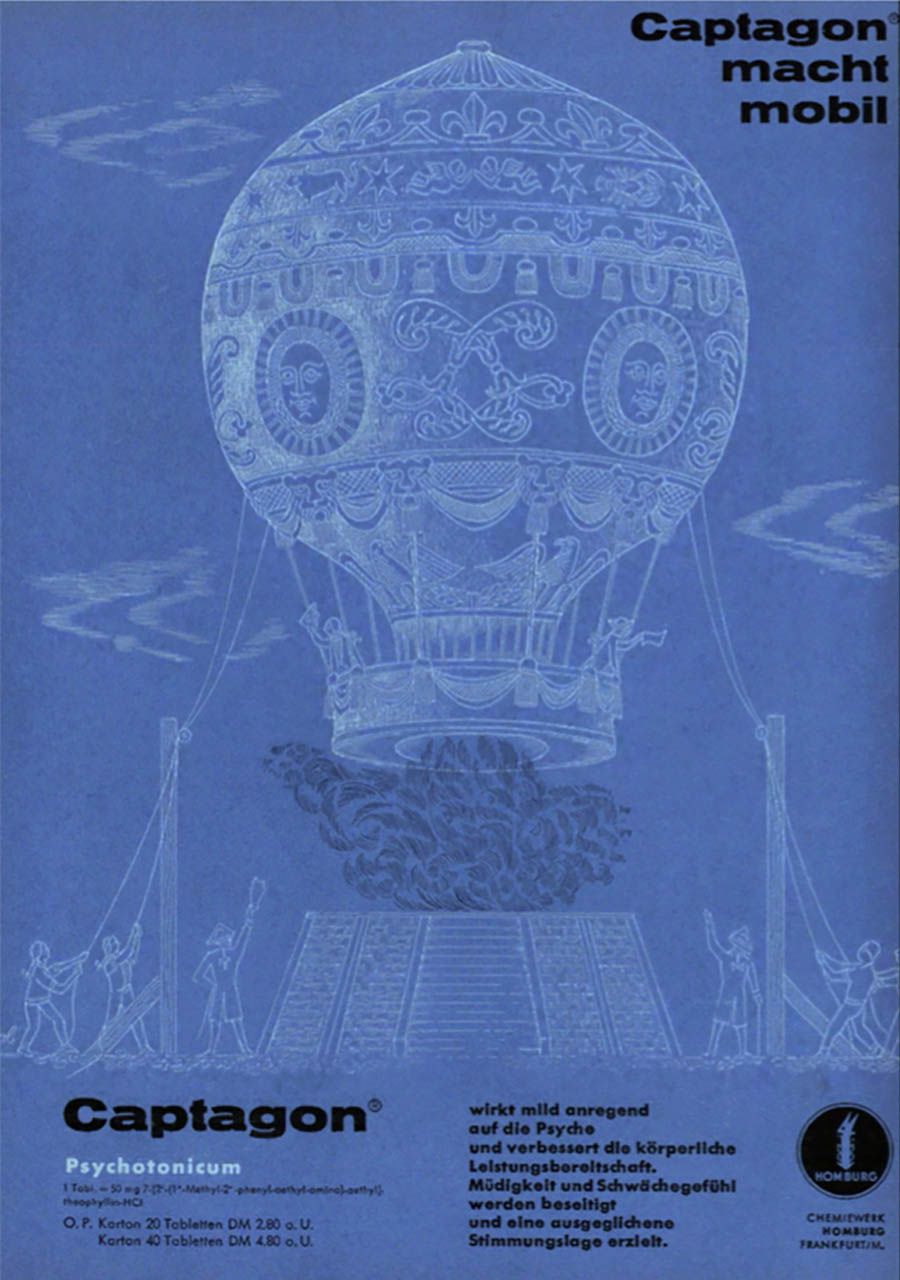
“Captagon makes you mobile.” A full-page advert for the drug, launched by German company Chemiewerk in the August 1961 edition of the Bavarian Medical Journal.
“Captagon makes you mobile.” A full-page advert for the drug, launched by German company Chemiewerk in the August 1961 edition of the Bavarian Medical Journal.
But Captagon, a “psychotropic” drug designed to affect a person’s mental state, was also found to cause confusion and mood swings, ranging from anxiety and extreme depression to impatience, irritability and feelings of anger or rage.
Even more worryingly, it also endowed some users with an indifference to pain and fear and a dangerous sense of invincibility — qualities that have reportedly led to the drug being adopted by the foot soldiers of Daesh and other terror groups in the region.
In 1981, amid growing evidence of widespread addiction and misuse, including its use as a performance-enhancing drug in sports such as cycling and soccer, Captagon was banned by the US Food and Drug Administration.
In 1986 Captagon’s legal run finally came to an end when the World Health Organization listed fenethylline as a controlled substance under the 1971 Convention on Psychotropic Substances, to which Saudi Arabia has been a signatory since 1975.
Since then, the drug has not been produced, sold or prescribed legally anywhere in the world.
But in the shadows, criminal gangs had spotted a profitable opportunity and counterfeit versions of Captagon soon began to appear in the Middle East and elsewhere.
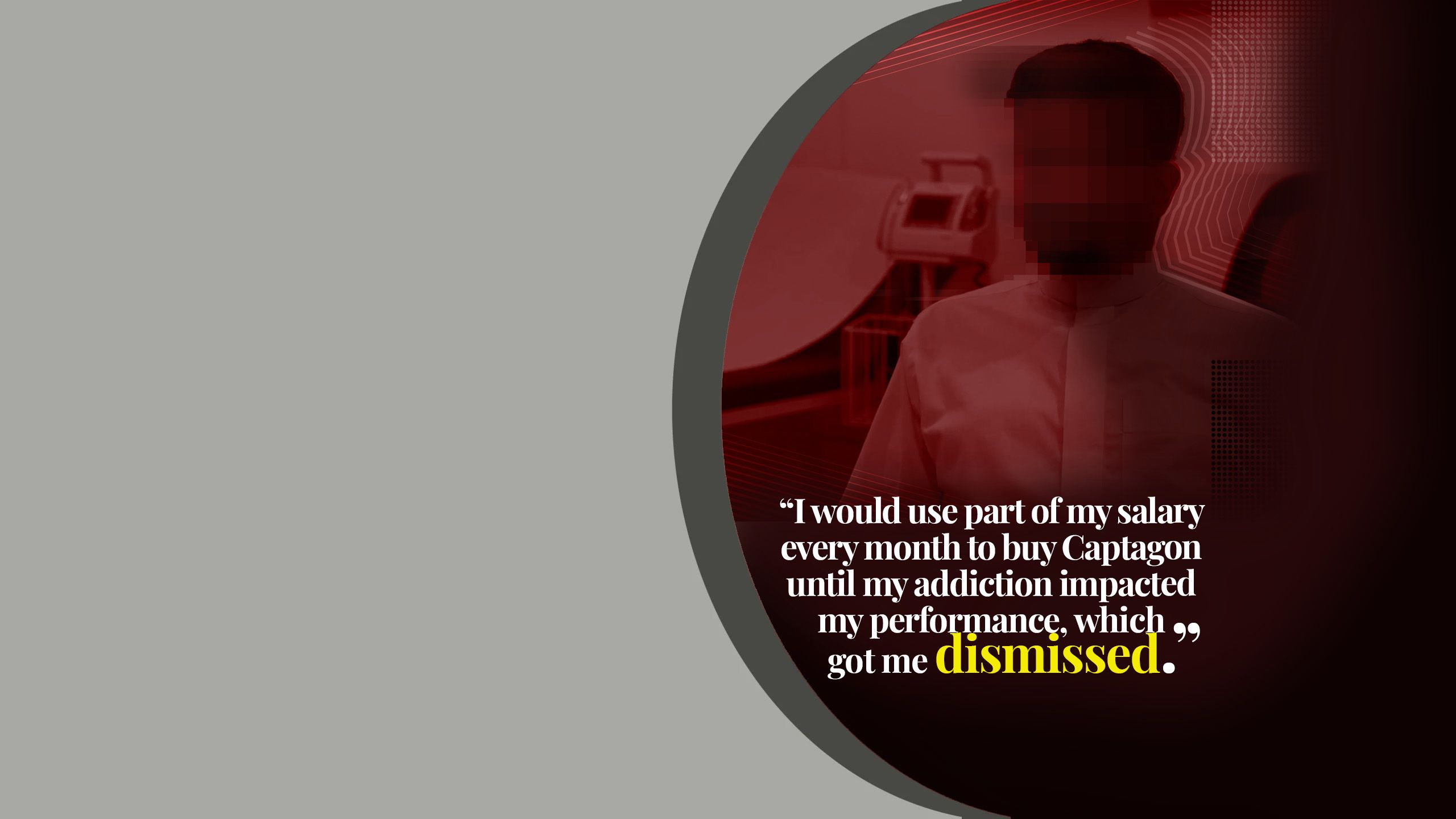
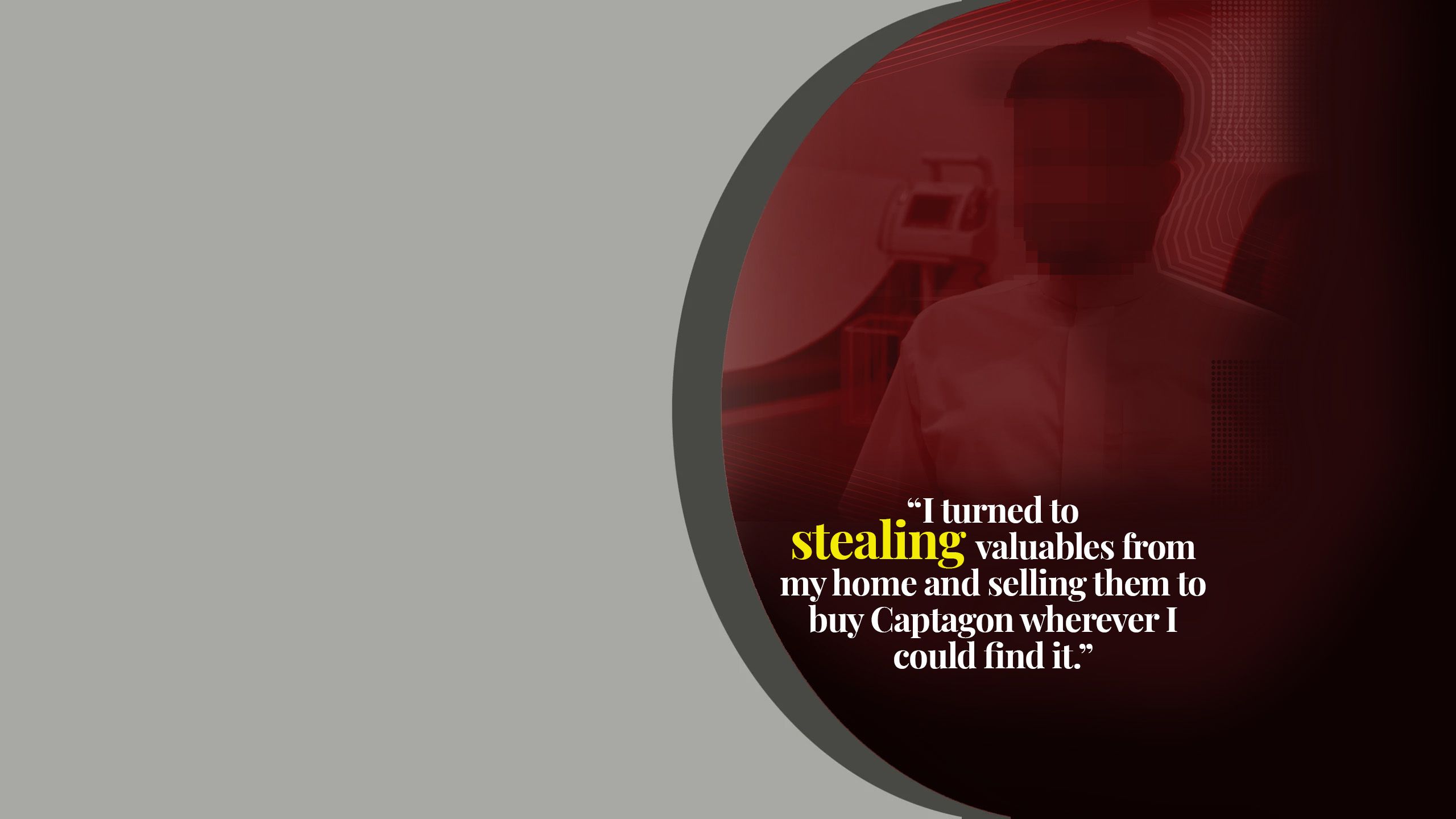
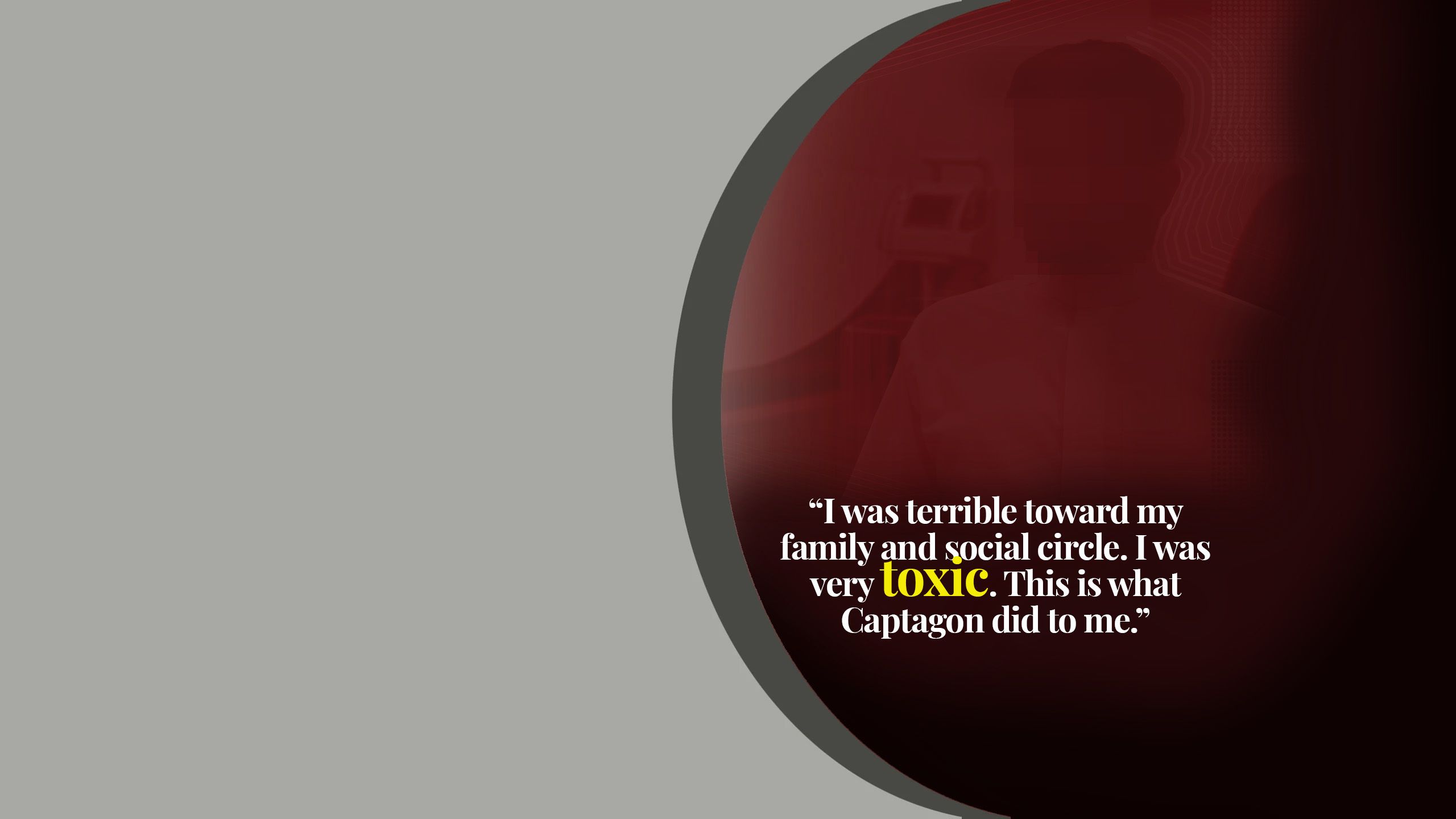
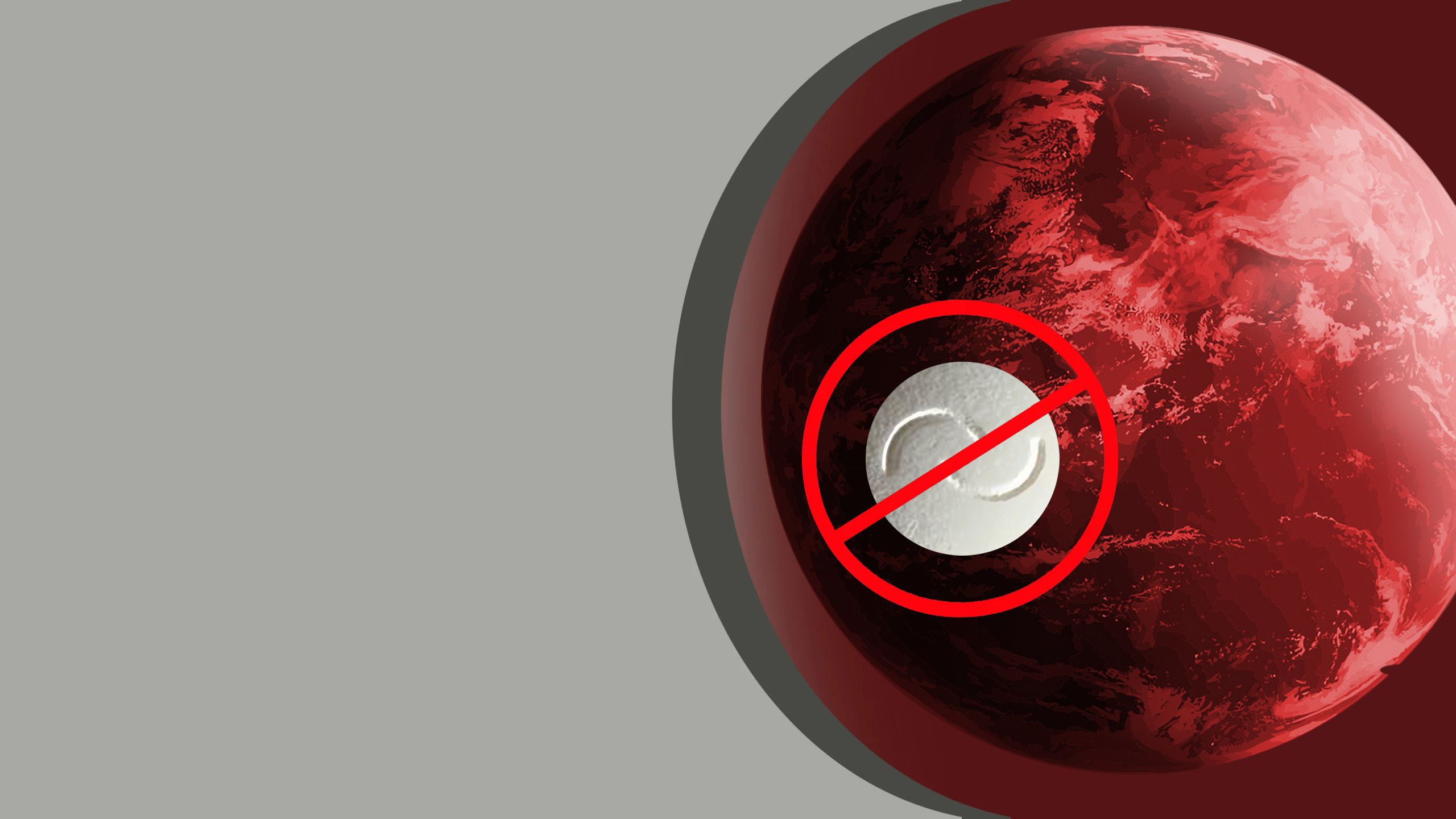
Users and dealers
In an interview in 2015, Abdelelah Mohammed Al-Sharif, secretary-general of Saudi Arabia’s National Committee for Narcotics Control and assistant director of Anti-Drug and Preventative Affairs, said that the majority of drug users in the Kingdom were in the 12-22 age group, and that Captagon was the drug of choice for the majority.
The phenomenon of Saudi Arabia’s battle against the counterfeit drug has drawn the attention of researchers from around the world. In 2016, for example, a research group of Greek forensic toxicologists reported that three out of every four patients being treated for drug problems in Saudi Arabia “are addicted to amphetamines, almost exclusively in the form of Captagon.”
The drug, they concluded in a paper published in the journal Basic & Clinical Pharmacology & Toxicology, was used throughout the Middle East by students, “in order to stay awake before final exams,” by women, “as an anorectic agent to lose weight,” and by wealthy individuals simply seeking a recreational high.
In 2020, researchers from Nanchang University, China, interviewed current and former university students in Saudi Arabia’s Eastern Province. They found that “once the drug is trafficked to the Kingdom, it goes to dealers at different levels in various regions.”
Each dealer promotes and sells the drug “in his own way,” they wrote in a paper, “Drugs behind the veil of Islam: A view of Saudi youth,” published in the journal Crime, Law, and Social Change in May 2021. “Some approach youth in front of schools; some wait for customers at home; some try to find drug users on the coasts, like peddlers.”
The Captagon dealer: "Lots of those who sell also take it."
One 22-year-old undergraduate told the researchers that the authorities were battling against a sinister mafia-style “omerta,” or code of silence.
“Because the drug trafficking is a source of income, traffickers try all their best to protect it,” he told the researchers.
“Drug trafficking is subject to the death penalty in the Kingdom (but) some people still do it; it means it is extremely important to them. So, just be blind and dumb when you see drug trafficking or dealing. They may kill you.”
Students aren’t the only “civilian” users of the drug. On condition of anonymity, a 25-year-old man from Baalbek, in Lebanon’s Bekaa Valley, told Arab News how he started taking Captagon four years ago, while working as a driver transporting fuel to and from Syria.
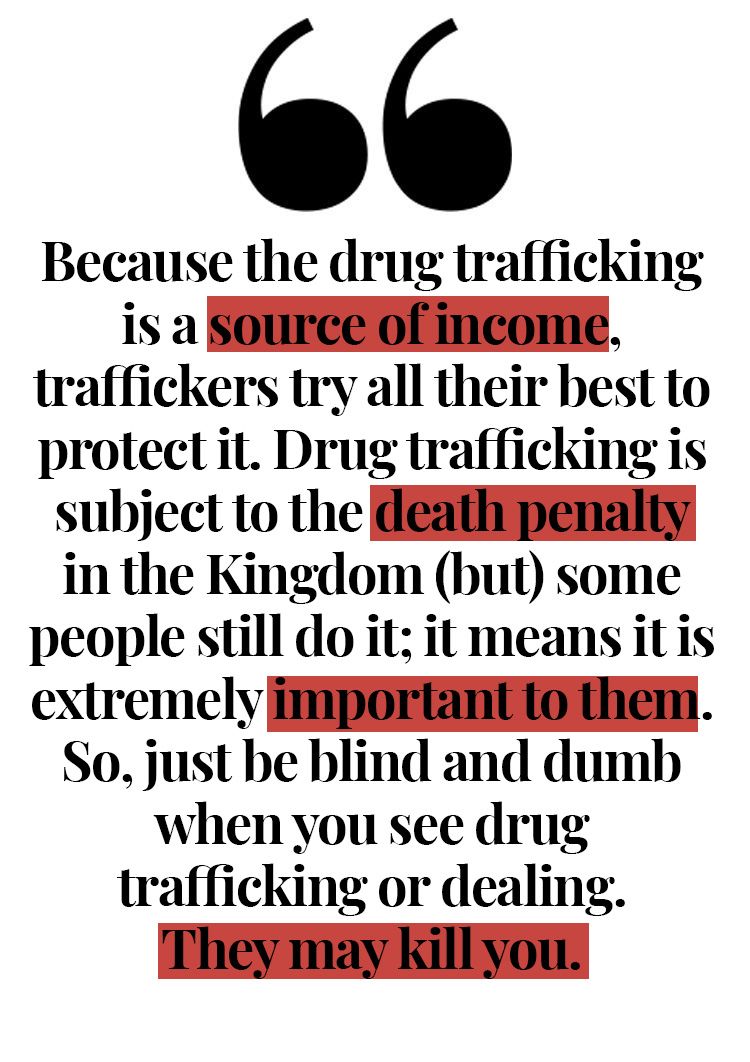
“You’re always alert when you’re on it and awake for your job, which mainly takes time during the night,” he said. “You feel active, you won’t be falling asleep behind the wheel.”
Every one of the truckers he worked with, he said, were on Captagon, “so we can stay awake . . . They make coffee then distribute the pills . . . the Syrians would offer us (the drug), saying, ‘Here, taste this.’ It felt good and so we started buying.
“If you find a truck driver, I guarantee he’d be a user.”
Now jobless, the man has continued to use Captagon, even though he is aware of the dangers.
“Even after I stopped my job, I remained taking it,” he said. “You’d be chilling with your friends and you’re up all night with them, so you take it for fun.”
Getting hold of the drug was easy, he said. “You call someone in Baalbek, you tell him where you are, and he gives you a location to come and pick up what you asked for.”
The user: "High on Captagon, you're fearless and might do stuff you otherwise wouldn't."
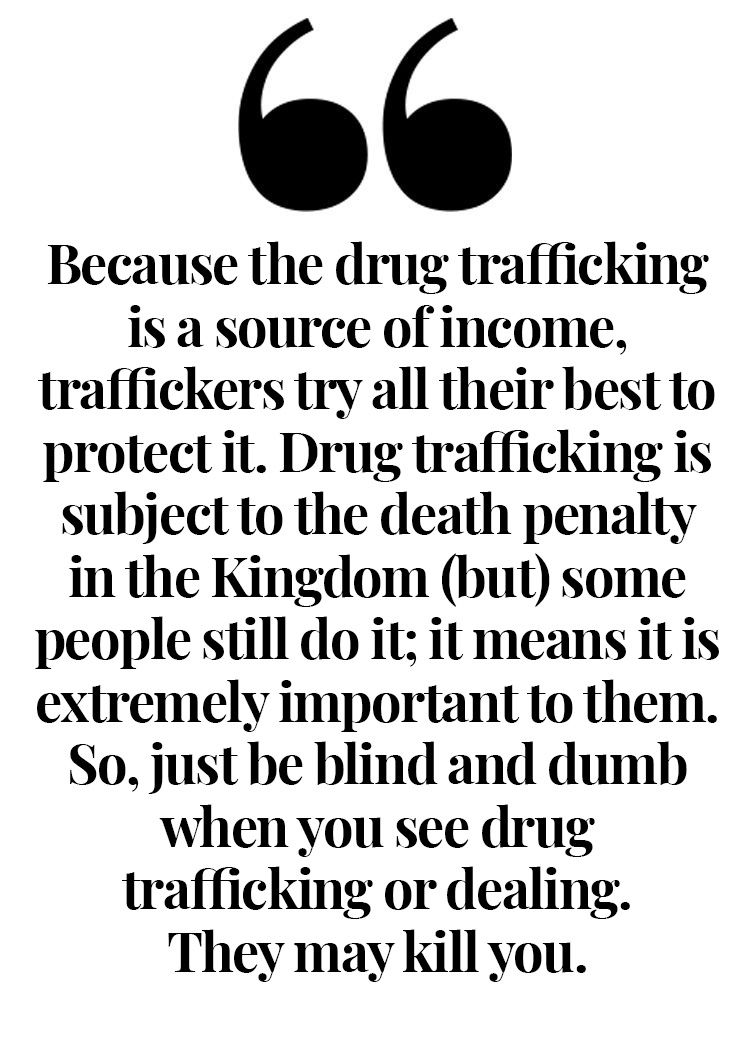
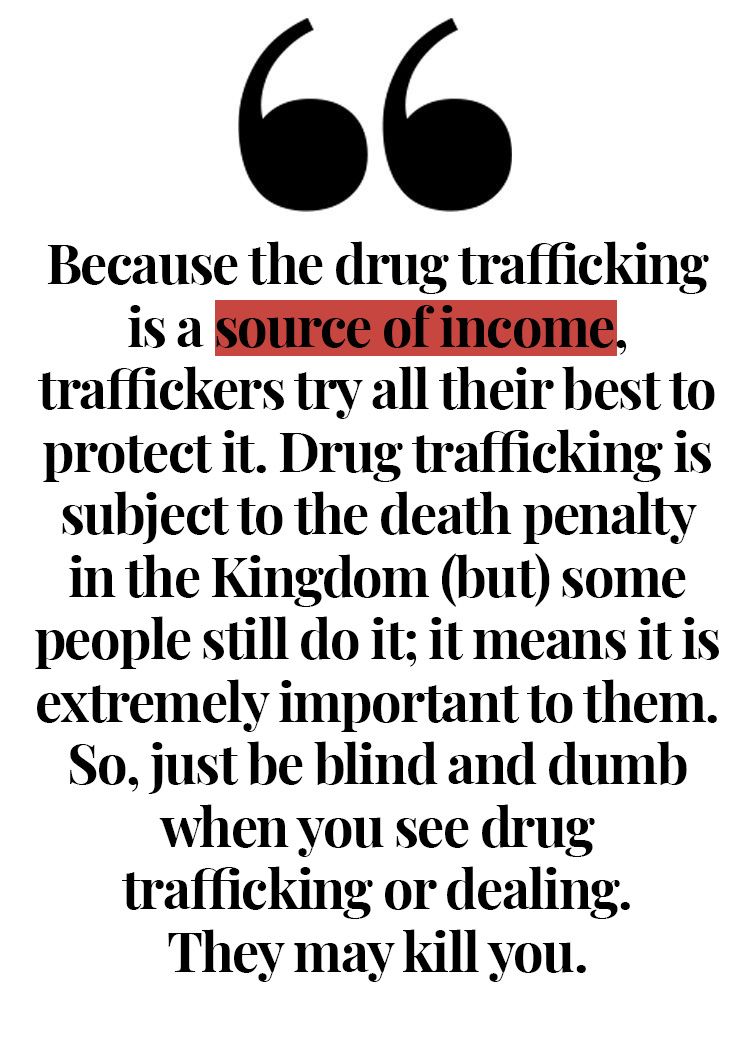
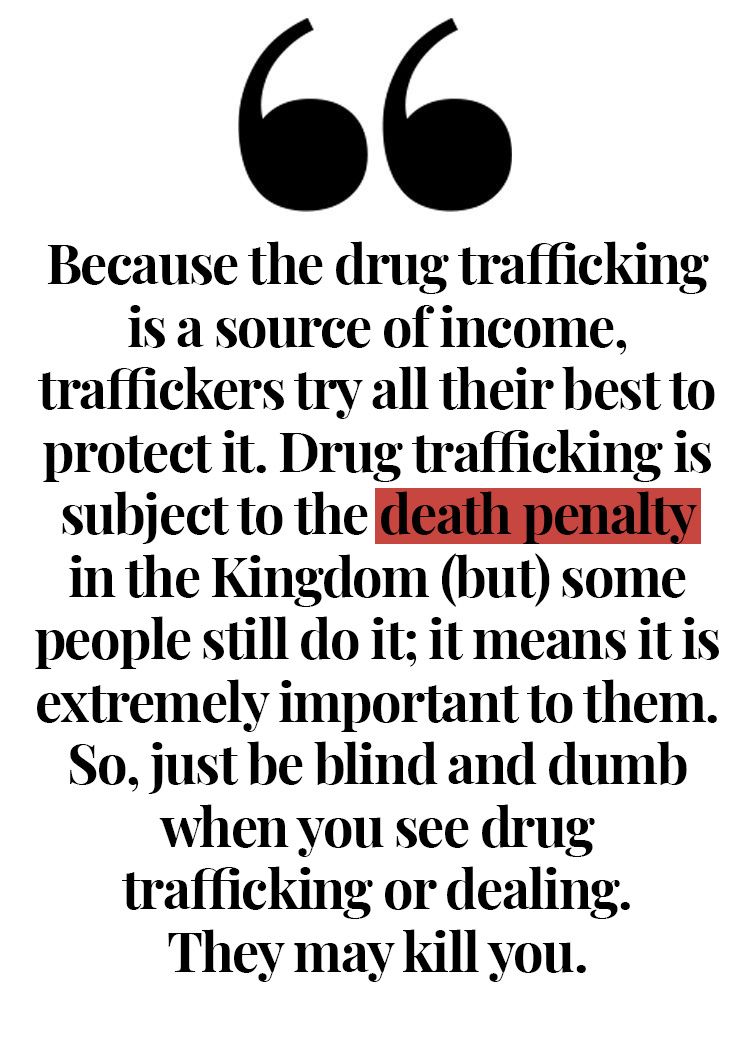

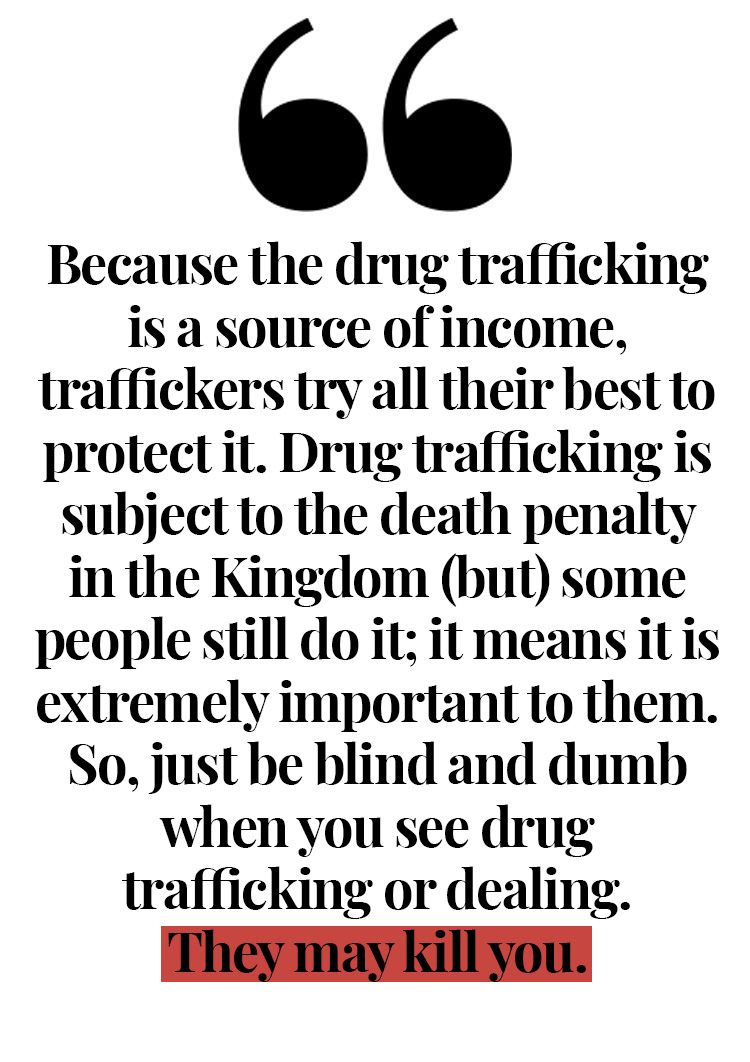
Making it, faking it
“Unlike drugs such as heroin and cocaine, it is relatively easy to manufacture synthetic stimulants (such as fenethylline) with common household chemicals and solvents that are readily available from commercial sources.”
So wrote Saudi researchers from the University of Jeddah, the Ministry of Health, and the Ministry of Interior in “Study of adulterants and dilutants in some seized Captagon-type stimulants,” a paper published in the journal Annals of Clinical Nutrition in June 2020.
Worryingly, added the six co-authors, instructions for making the drug were “readily available on the Internet.”
The necessary ingredients for making certain drugs, including amphetamine, are known as “precursor drugs,” and in the late-2000s authorities began to detect a growing global trade in vast quantities of these raw materials.
Between 2008 and 2011, for example, the European Monitoring Center for Drugs and Drug Addiction reported that large volumes of the amphetamine precursor phenylacetone, also known as BMK, were imported legally into Jordan and Iraq, ostensibly for the manufacture of cleaning and disinfection products.
In 2010 the International Narcotics Control Board noted that, “as many countries in West Asia had reported large seizures of Captagon, there was a risk that some of this imported BMK could have been used for illicit amphetamine synthesis, potentially to be marketed as Captagon.”
It may be marketed as Captagon, but in many cases is only distantly related chemically to the original drug.
Since 1992, chemical analysis of multiple seized shipments of pills marked with the twin-half-moon symbol have been carried out in countries including Turkiye, Serbia, Lebanon, Yemen, Iraq, Jordan and Saudi Arabia.
Frequently, as researchers from the Substance Abuse and Toxicology Research Center at Jazan University reported in a paper published in the Saudi Pharmaceutical Journal in 2020, only amphetamine, or its more powerful derivative, methamphetamine, is found, in varying concentrations and mixed with other additives. Of fenethylline, the key component of the original Captagon, often there is no trace.
The Captagon dealer, Beirut: "Initially we started getting drugs from the Syrian borders, but then we started getting them from here and actually sending them to Syria, Saudi Arabia, Egypt, and other countries.”
This uncertainty creates hidden dangers for users of counterfeit Captagon, who can have no idea what has gone into the pills they are swallowing.
If they are unwittingly taking methamphetamine, for example, they are consuming a drug which is a far more potent stimulant than the amphetamine from which it is derived, and which has longer-lasting effects on the central nervous system — effects that can be potentially devastating, as the Ramadan tragedy in the city of Safwa demonstrated so cruelly.
Even more disturbing, the same drug that is destroying lives in Saudi Arabia is fueling and financing violence, in and beyond the region.
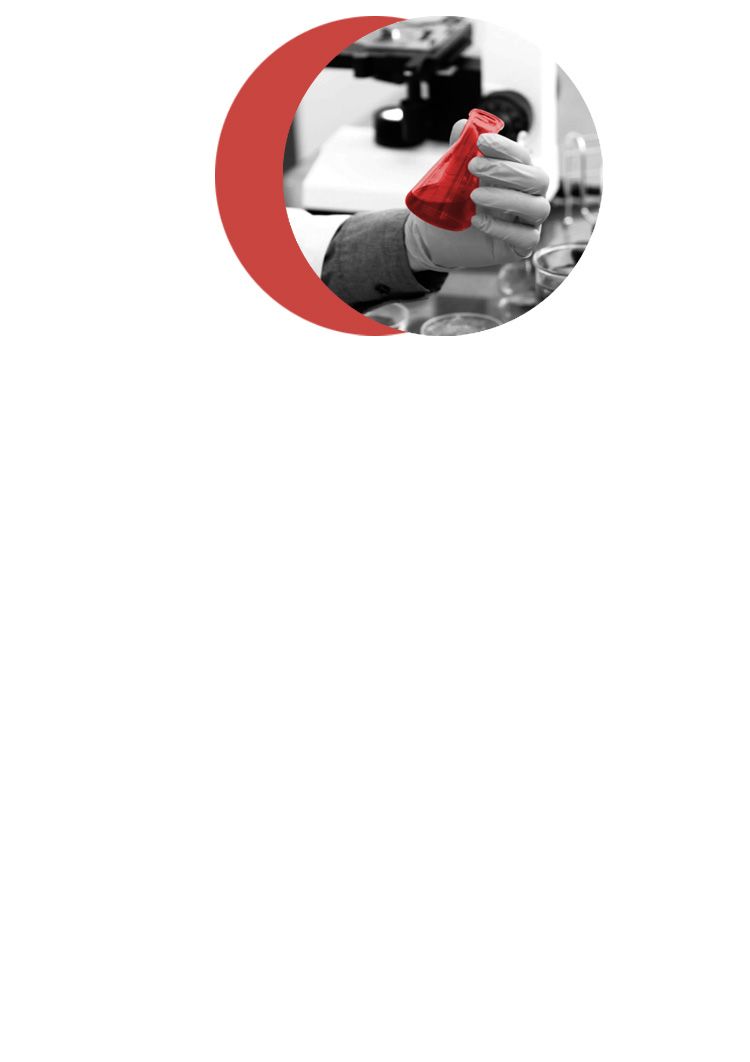
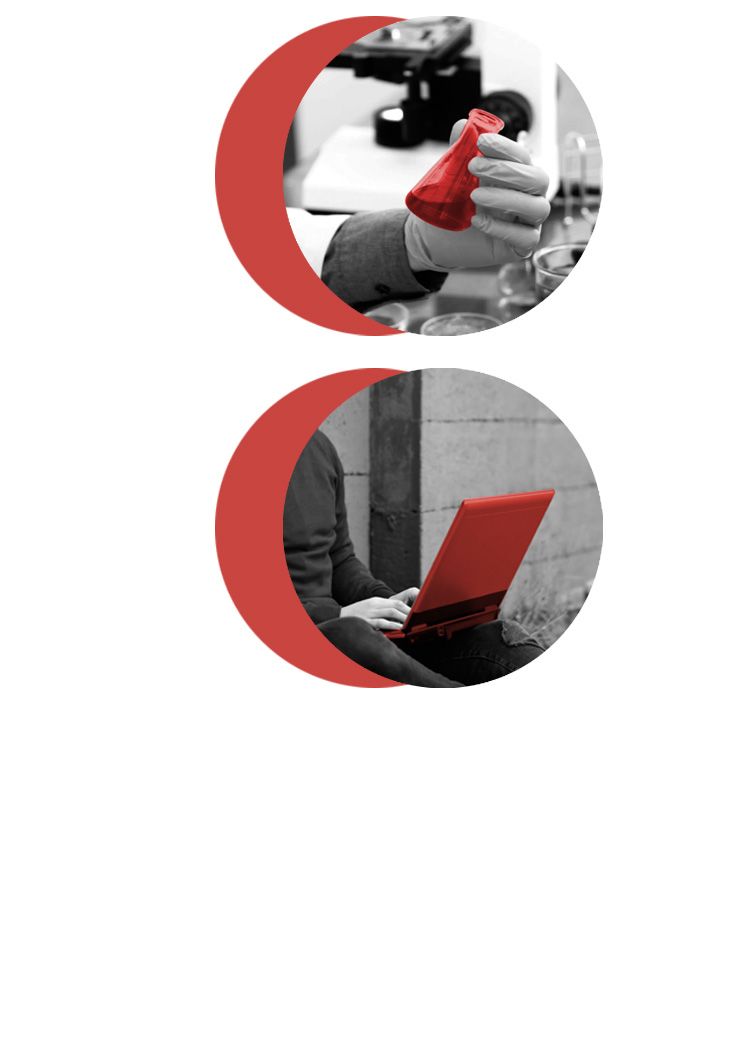
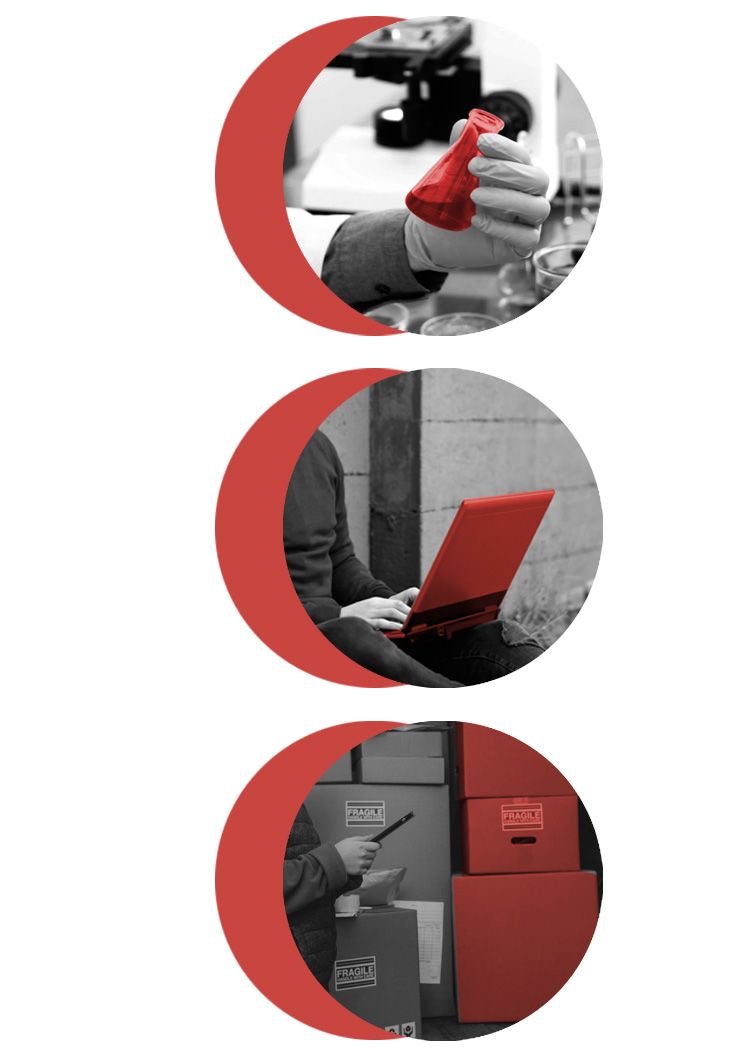
Synthetic courage
Stories about Captagon being the drug of choice for Daesh fighters first surfaced in “Syria’s War Drug,” a BBC Arabic documentary in September 2015.
“There was no fear any more after I took Captagon,” one interviewed fighter said.
“You can’t sleep or even close your eyes,” another said, “and whatever you take to stop it, you can’t stop it.
“I felt like I own the world, like I have power nobody has.”
One Kurdish special forces soldier who fought against Daesh during the siege of Kobani from 2014 to 2015 told Arab News the enemy fighters “would consume the pills before launching large-scale brutal attacks, or prior to a suicide attack.”
The former soldier, speaking on condition of anonymity, said that “on most of their suicide missions, the person doing it would be high on Captagon. It gave them the courage to do so.
“At times, after suicide missions, we would find a small blood-spattered bag of Captagon pills by body parts.”
Frequently, he added, PUK units that captured Daesh fighters would find them “out of their minds” on the drug. The prisoners were sent for questioning to an anti-terrorist unit, where officers would often have to wait up to 24 hours to interrogate them, while they came down from their high.
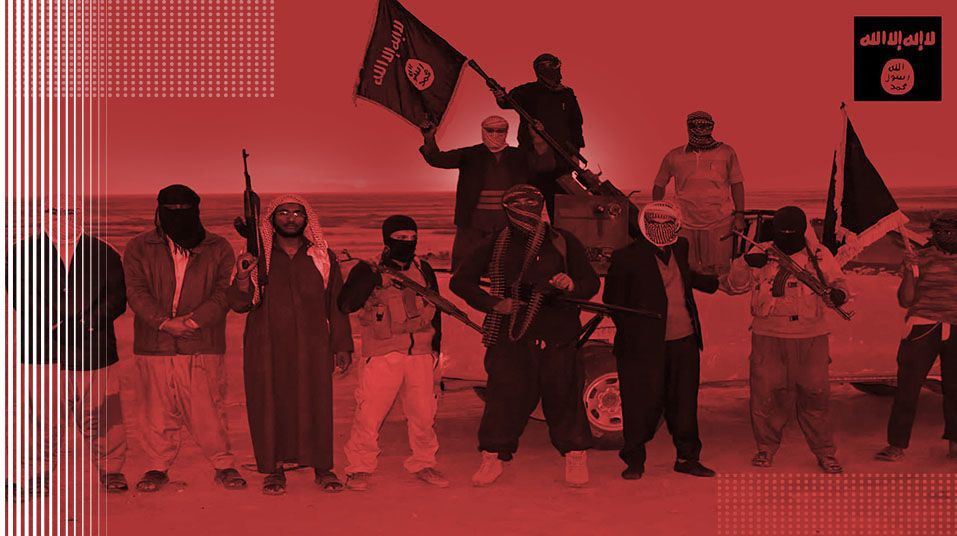
Daesh fighters in Iraq’s Nineveh province in June 2014. Many took Captagon in a bid to boost their courage. (AFP)
Daesh fighters in Iraq’s Nineveh province in June 2014. Many took Captagon in a bid to boost their courage. (AFP)
“Even then, they would be unresponsive mentally, but even the smallest physical discomfort would cause them immense pain due to their withdrawal symptoms kicking in . . . Once the effect of the pills come off, and withdrawal symptoms kick in, they start becoming panicked, anxious, they shake, and they start asking the jailers for pills.”
Throughout interrogations, the fighters “admitted to using Captagon prior to attacks, to storing it in their houses, to making sure there are enough pills to go around in central locations they were based in.”
Some Daesh members, he said, “also confessed to force-feeding Captagon pills to the women they captured as sex slaves . . . so their bodies can endure the physical torture they were subjected to.”
On June 18, 2018, Operation Inherent Resolve, the US-led multinational campaign against Daesh, reported that coalition-supported forces operating near Al-Tanf in Syria had seized and destroyed “a large cache of Daesh’s narcotic drugs,” including 300,000 Captagon pills, “an illegal drug frequently trafficked and used by Daesh members,” with a total street value of $1.4 million.
“Despite Daesh’s facade of Islamic purity,” said the OIR, “its criminal terrorists are known drug users and traffickers.” Captagon, it continued, was “informally referred to as the ‘jihadists’ drug’.”
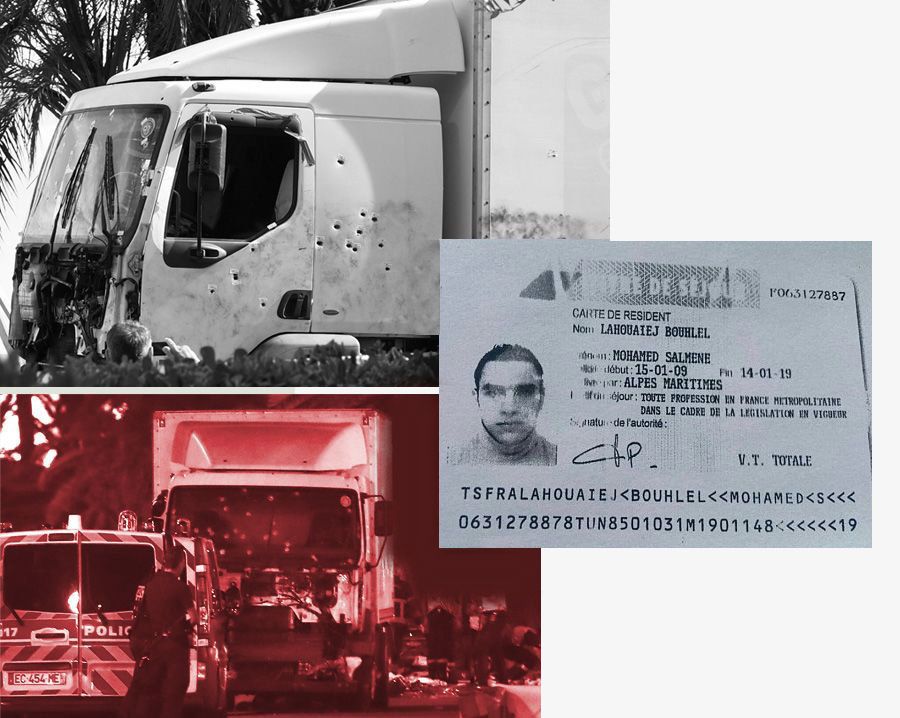
Captagon has been linked to perpetrators of terror attacks in Europe, including Mohamed Bouhlel, who killed 86 people in Nice, France, in July 2016.
Captagon has been linked to perpetrators of terror attacks in Europe, including Mohamed Bouhlel, who killed 86 people in Nice, France, in July 2016.
The drug has also been linked in media reports to several of the high-profile attacks carried out across Europe by Daesh-inspired terrorists. Analysis of the cell phone used by Mohamed Bouhlel, who killed 86 people when he drove a truck into Bastille Day crowds in Nice, France, in July 2016, revealed he had researched the drug.
But “jihadists” are not the only users of Captagon, a drug that has gained increasing popularity among youth in Saudi Arabia and the wider region.
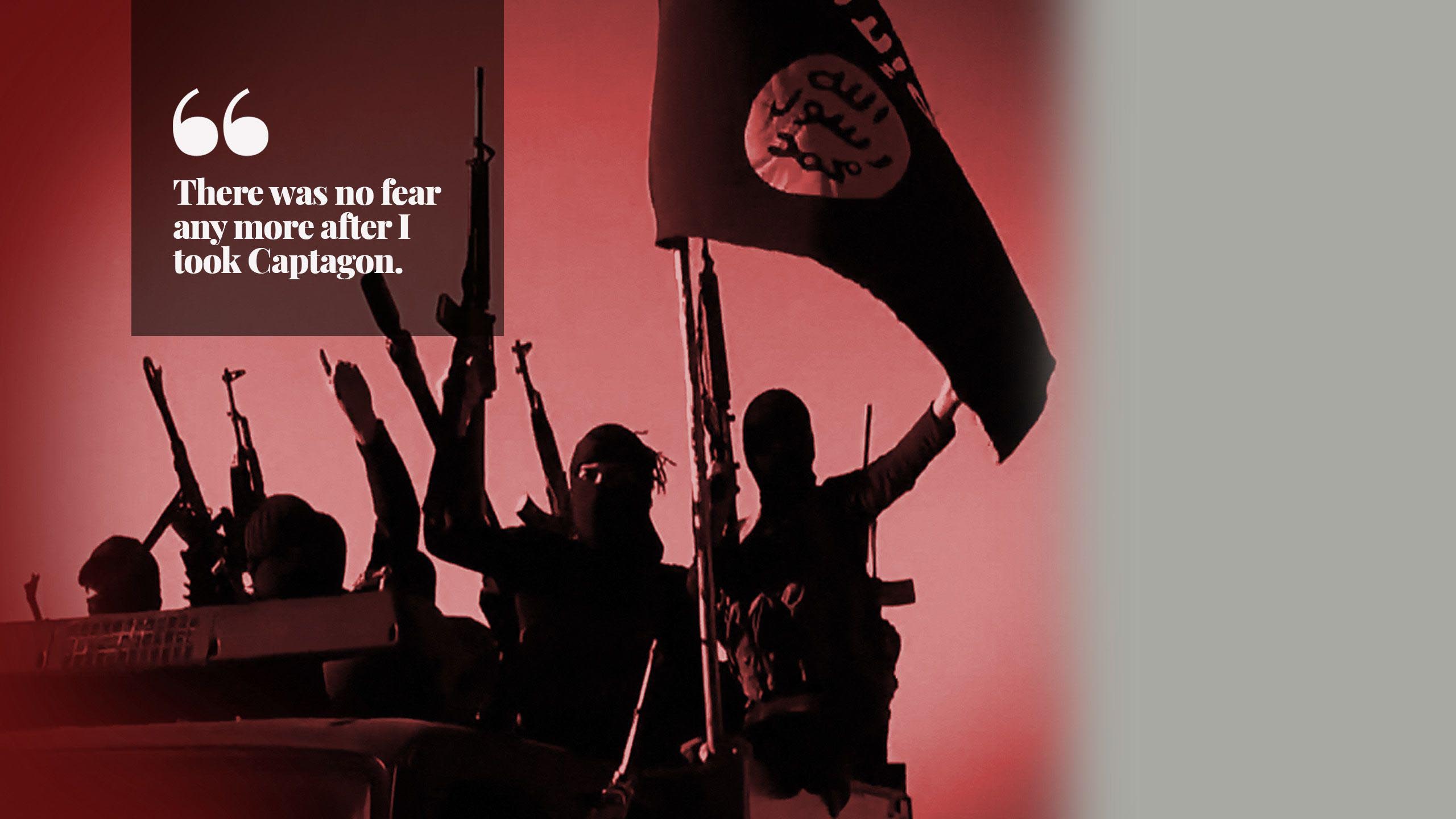
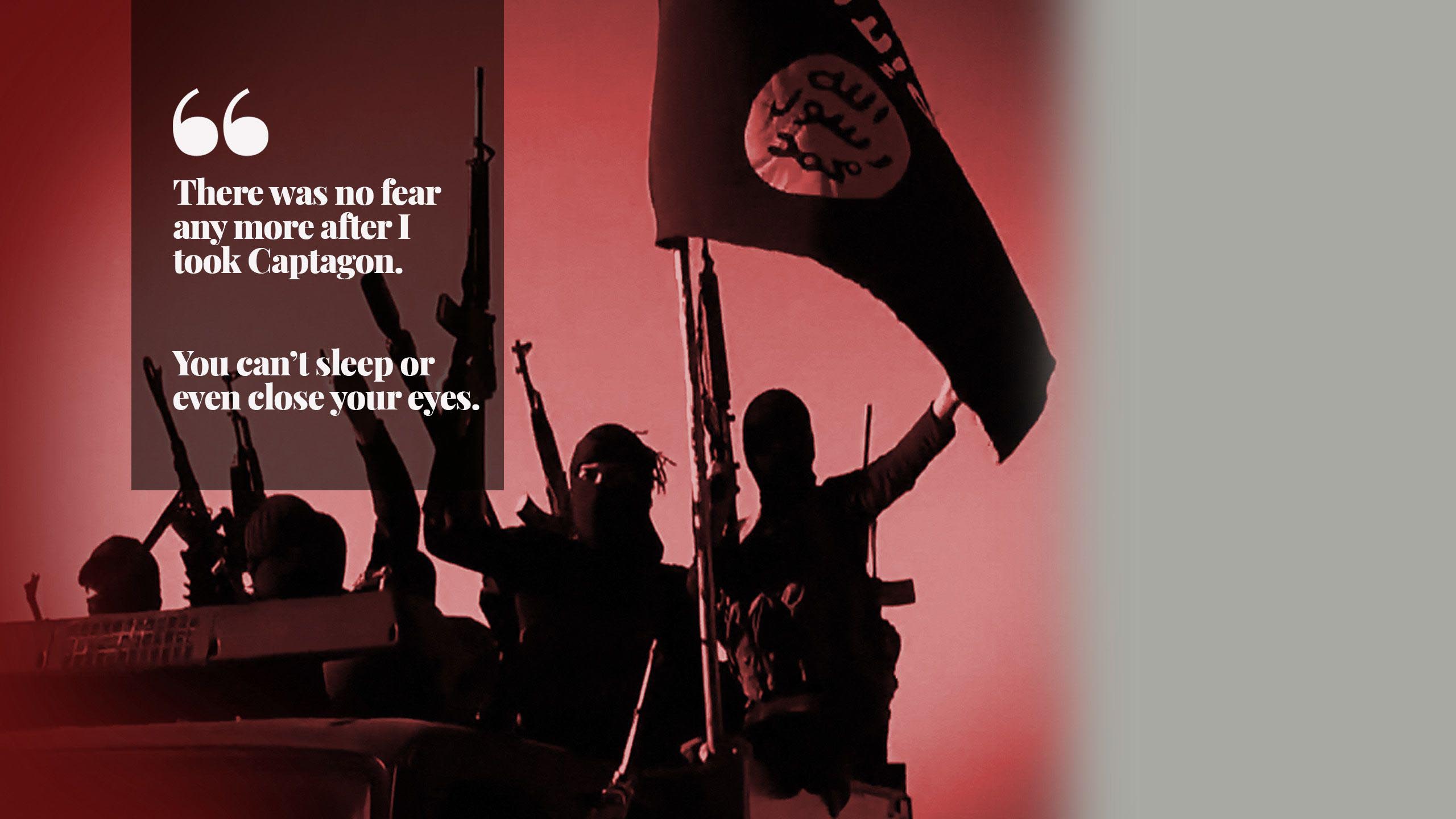
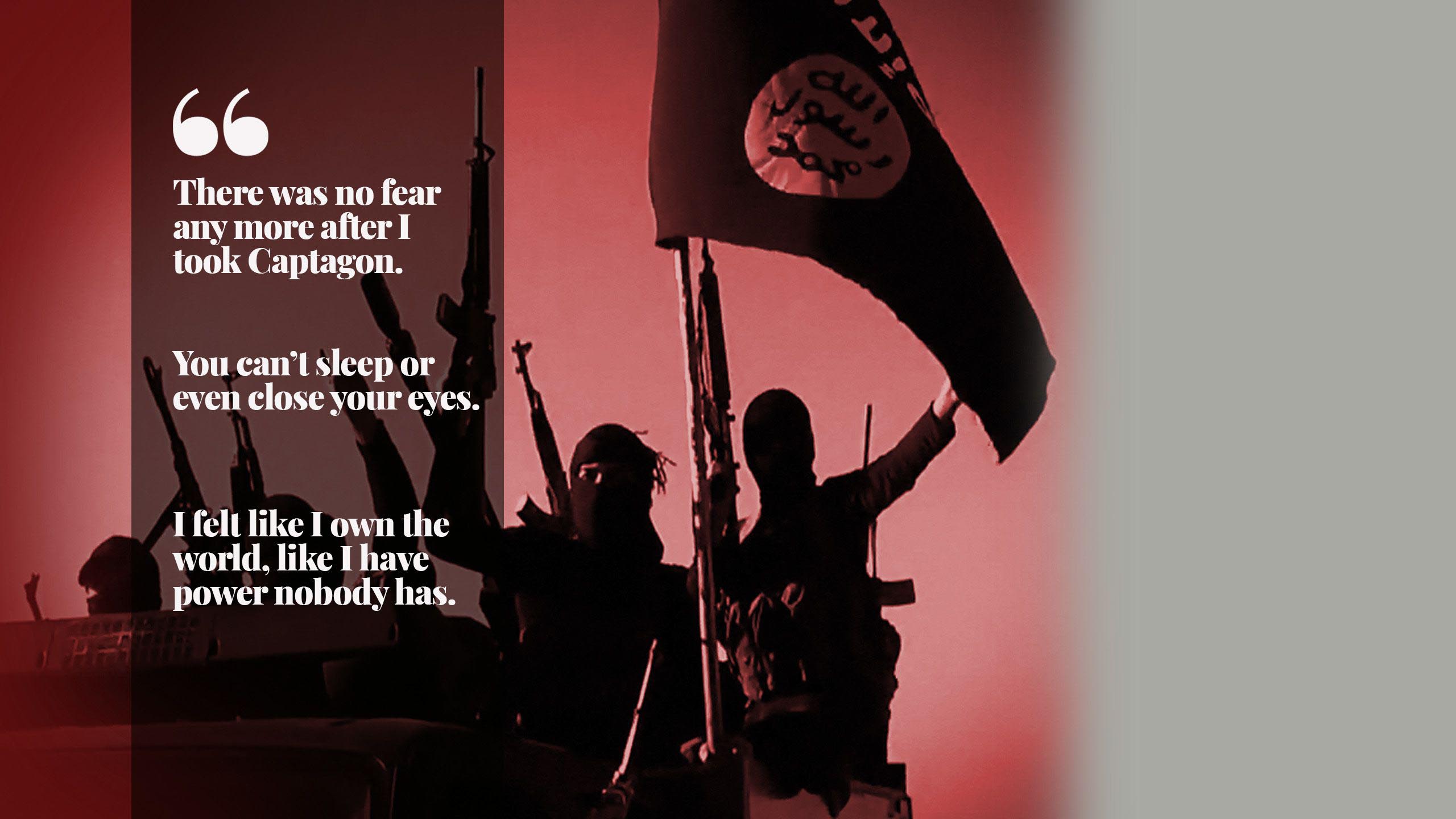
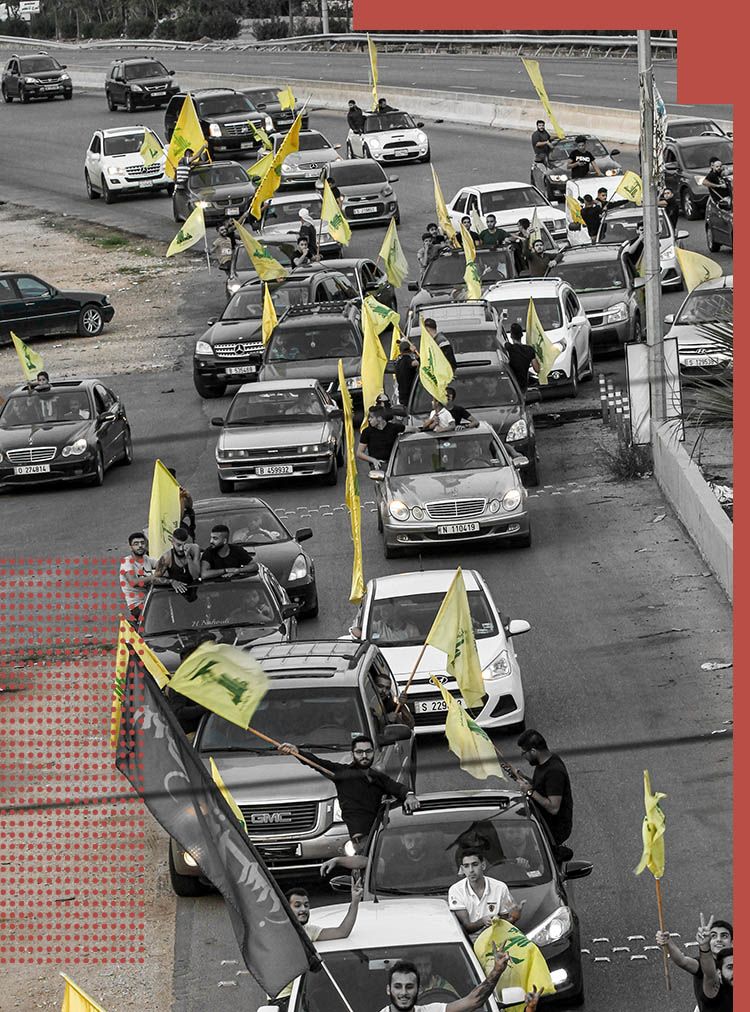
Hezbollah supporters parading in Ghazieh, south Lebanon, in October 2019. The Iran-backed group is implicated in the Captagon trade. (AFP)
Hezbollah supporters parading in Ghazieh, south Lebanon, in October 2019. The Iran-backed group is implicated in the Captagon trade. (AFP)
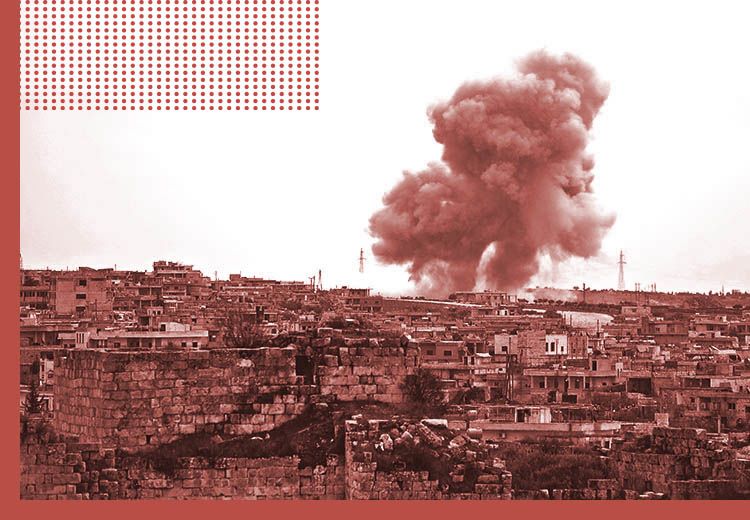
The village of Al-Bara in Syria’s Idlib province is bombed in March 2020. The war against the Syrian opposition people is largely funded by the lucrative Captagon trade. (AFP)
The village of Al-Bara in Syria’s Idlib province is bombed in March 2020. The war against the Syrian opposition people is largely funded by the lucrative Captagon trade. (AFP)
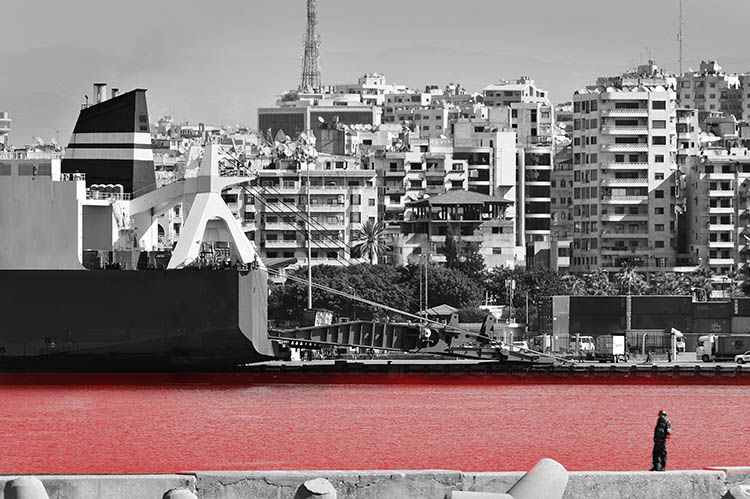
The Syrian port of Latakia, through which Captagon tablets are exported in bulk.
The Syrian port of Latakia, through which Captagon tablets are exported in bulk.
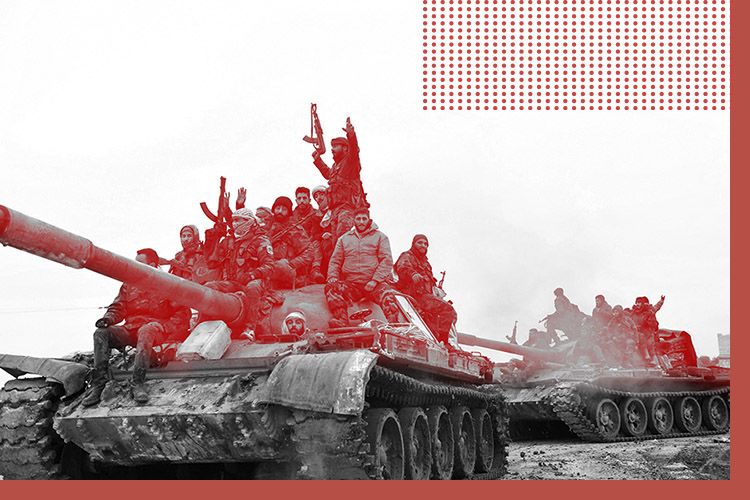
Syrian armor in northern Aleppo province in February 2020. The Fourth Armored Division is now a force in the drugs business. (AFP)
Syrian armor in northern Aleppo province in February 2020. The Fourth Armored Division is now a force in the drugs business. (AFP)
Made in Syria
Today, the vast majority of the tens of millions of pills flooding the Arabian Peninsula every year are manufactured on the doorstep, mainly in Syria and with the active involvement of the regime of President Bashar Assad.
Since the start of the Syrian civil war a decade ago, what began as a trickle of Captagon into the region has turned into a flood. Facing global sanctions that have left it desperate for revenue, the Syrian regime has gone into the drug-manufacturing business, working with Iranian-backed militias in Syria and Lebanon to smuggle industrial quantities of Captagon into Saudi Arabia and the other Gulf states, by land, sea and air.
According to a report published in April 2022 by Washington think-tank the New Lines Institute for Strategy and Policy, war-torn Syria has become “the hub for industrial-sized production.” It adds that “elements of the Syrian government are key drivers of the Captagon trade, with ministerial-level complicity in production and smuggling, using the trade as a means for political and economic survival amid international sanctions.”
The government “appears to use local alliance structures with other armed groups, such as Hezbollah, for technical and logistical support in Captagon production and trafficking.”
Caroline Rose, a senior analyst at New Lines, told Arab News there was no doubt that “Captagon is being produced and trafficked by an array of individuals that are very close to the Assad regime, some of them cousins and relatives of regime members.”
Most notable among them, she said, was “Bashar Assad’s brother, Maher, who has been affiliated with production and smuggling efforts in his role as commander of the Fourth Armored Division,” a military unit whose primary mission is to protect the Syrian regime from internal and external threats.
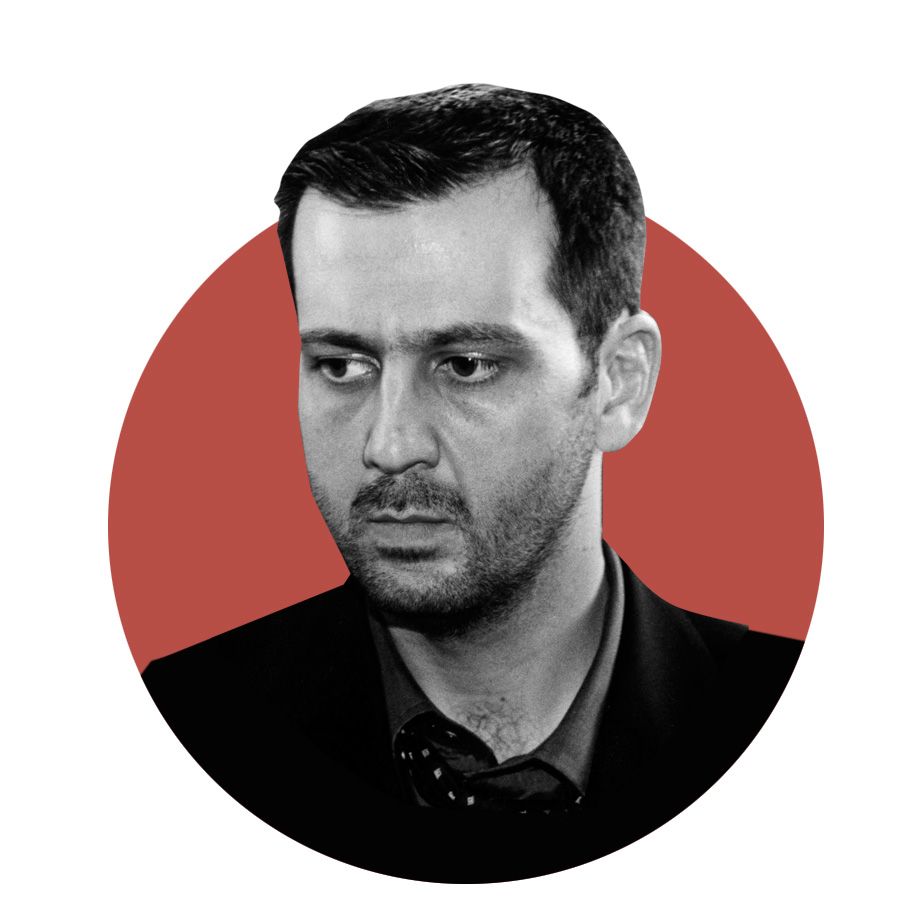
Bashar Assad’s brother, Maher, commander of Syria’s Fourth Armored Division, which is linked to Captagon production and smuggling.
Bashar Assad’s brother, Maher, commander of Syria’s Fourth Armored Division, which is linked to Captagon production and smuggling.
This ties in with the testimony of “Qussai,” an anonymous Syrian researcher based in Turkiye, who told Arab News that the involvement of the government in the drug trade is an open secret within Syria, and that “the Fourth Division is heavily involved.”
This unit has been associated with a diverse range of economic activities linked to Syria’s wartime economy, including the collection of levies from traders and smugglers at checkpoints set up at international border crossings under regime control between Syria and Lebanon, Iraq and Jordan. According to Qussai, the division is also directly involved in the production of Captagon, particularly in Safita and Baniyas, two cities in the northwestern Tartous governorate in Syria.
“There are military officers deployed there in military barracks with ‘No entry’ signs to ban the locals from entry to certain places under the guise of having secretive anti-Israeli weaponry they are trying to contain,” he said.
“I know of several chemists who have admitted to me they work within the Fourth Division as drug cooks.”
Because the Syrian regime is involved, “the business has become almost legitimate and is (a) top-tier (operation), it’s done properly. There are front companies in Europe that were set up by the regime and the materials for the production come from there.”
These raw materials, he said, are shipped to Latakia, Syria’s main port, “and distributed to factories from there.” Much of the Captagon that is smuggled into Gulf states is also shipped out of Latakia.
In a policy brief published in January 2022, Ankara-based think-tank ORSAM, the Center for Middle Eastern Studies, concluded that without doubt “the drug industry and smuggling are facilitated and run by the Assad regime.”
Occasionally, the Syrian government announces that it has made spectacular seizures of drugs. In November 2021, outlets including Agence France-Presse reported a claim by the Interior Ministry that “Syrian counter-narcotics units” had seized “a record haul of 2.3 tons of the amphetamine-type stimulant known as Captagon” — about 14 million pills.
Such claims, said Middle East expert Gregory Aftandilian, a non-resident fellow at the Arab Center Washington DC, should be taken with a pinch of salt.
The regime, said Aftandilian, a former Middle East analyst in the US departments of State and Defense, “is playing it both ways — they want to gain international legitimacy.
“So on the one hand, they want to show that they’re a ‘responsible’ government, but on the other hand they are still trying to make money. It’s good public relations for them to say, ‘Well, we caught X number of smugglers, and we’ve cracked down on some production facilities.’ But of course, very few people believe this.”
The skeptics include US legislators. On Sept. 20, 2022, the Syrian regime’s role in the drug trade was officially recognized when the US House of Representatives passed H.R. 6265, the “Countering Assad’s Proliferation Trafficking and Garnering of Narcotics (CAPTAGON) Act,” which required the US government “to develop an interagency strategy to disrupt and dismantle narcotics production and trafficking and affiliated networks linked to the Bashar Assad regime in Syria.”
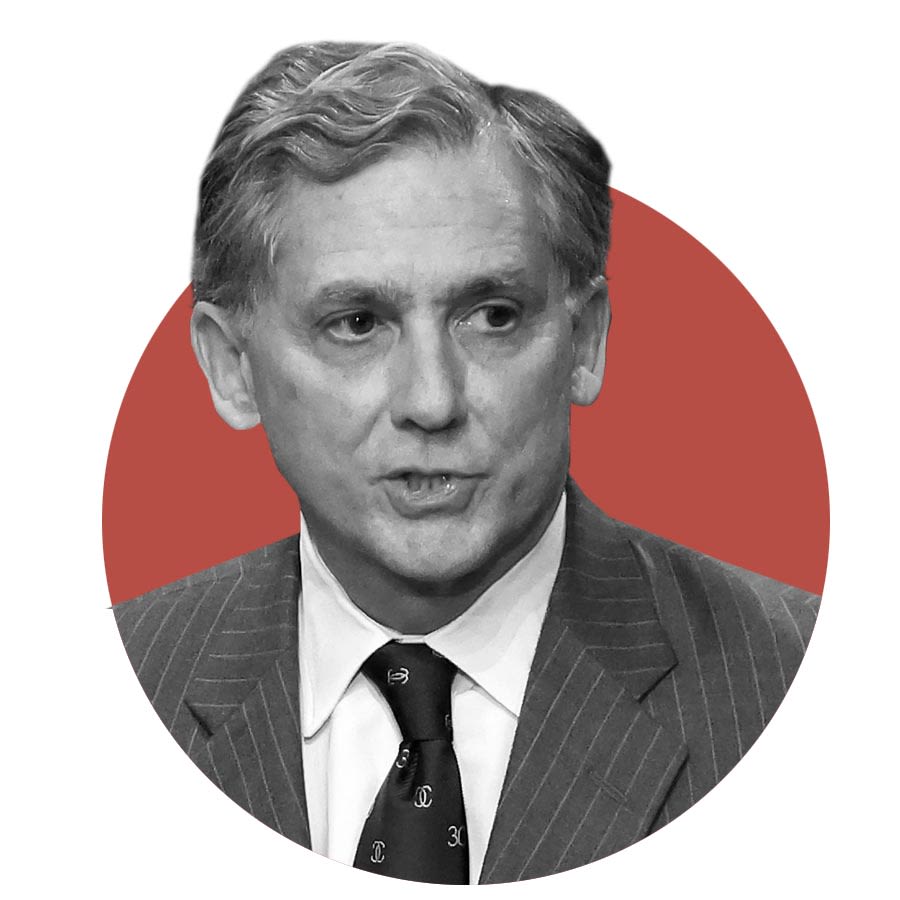
US Representative French Hill: "Syria is now becoming a narco-state."
US Representative French Hill: "Syria is now becoming a narco-state."
Speaking on the House floor in support of the Bill, Representative French Hill said that, “in addition to regularly committing war crimes against his own people, the Assad regime in Syria is now becoming a narco-state.” Captagon, he added, “has already reached Europe and it is only a matter of time until it reaches our shores.”
Inevitably, says the New Lines Institute, neighboring Lebanon “has served as an extension of the Syrian Captagon trade,” and has become “a key transit point for Captagon flows, with Syrian government-connected Hezbollah leaders participating in the trade’s expansion.”
Two Lebanese dealers spoke to Arab News on condition of anonymity. They admitted sending drugs to Saudi Arabia, Egypt and other countries, and said they sourced their product mainly from two drugs factories — one in Britel, a town in Lebanon near the Syrian border, and the other in Qusair in western Syria, on the Lebanese border.
Corruption, they said, was the key to successful smuggling. “No quantity leaves this country without political cover,” said one. “Money is key.”
In December 2022 a court in Lebanon sentenced a man known as the “Captagon King” to seven years’ hard labor for producing and trafficking the drug. According to AFP, Hassan Dekko, a Lebanese-Syrian, had “high-level political connections in both countries” and ran a major smuggling operation out of a village in the Bekaa region of Lebanon.
Caroline Rose, New Lines Institute: "Captagon is being produced and trafficked by an array of individuals very close to the Assad regime."
“An immoral operation”
Col. Joseph Moussallem, head of public relations for Lebanon’s Internal Security Forces, told Arab News that the popularity of Captagon among producers, smugglers and dealers alike boiled down to a single factor — its profitability.
“The estimated profit of each shipment is very high,” he said. “Unlike hash and marijuana, Captagon manufacturing takes a few dollars to make and sells for triple that.”
Whereas the production of hash and marijuana “requires water, farming and specific weather conditions, creating a Captagon pill can be done under any conditions. It is an extremely profitable business.”
So profitable, according to the New Lines Institute, that the Captagon trade is “a rapidly growing illicit economy in the Middle East and Mediterranean,” earning Syria $5.7 billion in 2021 alone.
Moussallem said that in the first nine months of 2022 alone, Lebanon’s Internal Security Forces had intercepted and seized more than five million Captagon pills.
“We do not know when this will end,” he said. “We are trying our best and using all of our manpower.” The force had, he said, “lost some of our men” in the battle against the drug.
What they were dealing with, he added, was “an immoral operation. We do not condone the poisoning of citizens, let alone our Arab brothers and sisters.”
In the battle against Captagon, the ISF cooperates with its counterparts in other regional states.
“When the shipments are aimed abroad, and it is usually and mainly toward the Gulf, we cooperate with the forces of that receiving country,” Moussallem said. “Tactics and information are shared.”
Although some consignments of drugs are moved through airports, smuggling Captagon by aircraft “is considered a small-scale operation in comparison to smuggling by sea or land. There are only so many pills you can smuggle via plane.”
The risks of doing so were highlighted in 2015 when no less a person than 29-year-old Prince Abdel Mohsen bin Walid bin Abdulaziz was arrested at Rafik Hariri International Airport while attempting to smuggle about 10 million pills from Beirut to Saudi Arabia on board a private jet, in boxes bearing his name and the emblem of the Saudi state.
The spectacular bust earned him the nickname “Prince of Captagon,” and a five-year stay in a cell in Beirut’s Hobeich detention center.
According to a member of Lebanon’s anti-narcotics squad, speaking to Arab News on condition of anonymity, whether the smuggling is being done via air, land or sea, the smugglers are “mainly Lebanese and Syrians.”
Smuggling through the region’s ports, he said, is the preserve of “the ones with connections, the bigwigs . . . The ports can be used to smuggle (pills) by the millions, easily, (but) there is no possible way one can smuggle large amounts and use the ports without protection from members of the government and other people in high places.”
Smuggling, he added, “started on a small level in 2011, by 2015 it had kicked to high gear and it’s still ongoing.”
When the pills are smuggled by truck, concealed within the vehicle’s structure or the cargo it is carrying, “you find at times an agreement between the smuggler and the transportation company. Some companies are very well aware what is being hidden inside their shipments and some are naive enough not to do any background or thorough checks.
“In both cases, the smuggler and the company will be under arrest.”
Small-scale smugglers, including families hoping to boost their incomes, are often apprehended at the borders. “Children’s dolls are used. Pills have even been found in babies’ diapers, wrapped around the toddler.
“You see a small truck with a family inside, a veiled mother, her veiled daughters, a baby and the husband, you would think nothing of it. But at times you find all of them are carrying Captagon pills on them.”
A regional problem
Saudi Arabia isn’t the only country in the region and beyond grappling with the Captagon crisis.
In July 2020, for example, Italian police seized a 14-ton haul of 84 million Captagon pills at the Port of Salerno. Hidden in consignments of drums of paper and gear wheels, officials said the pills, with a street value of $1.1 billion, were made in Syria and bound for the European market, to raise money to fund terror group Daesh.
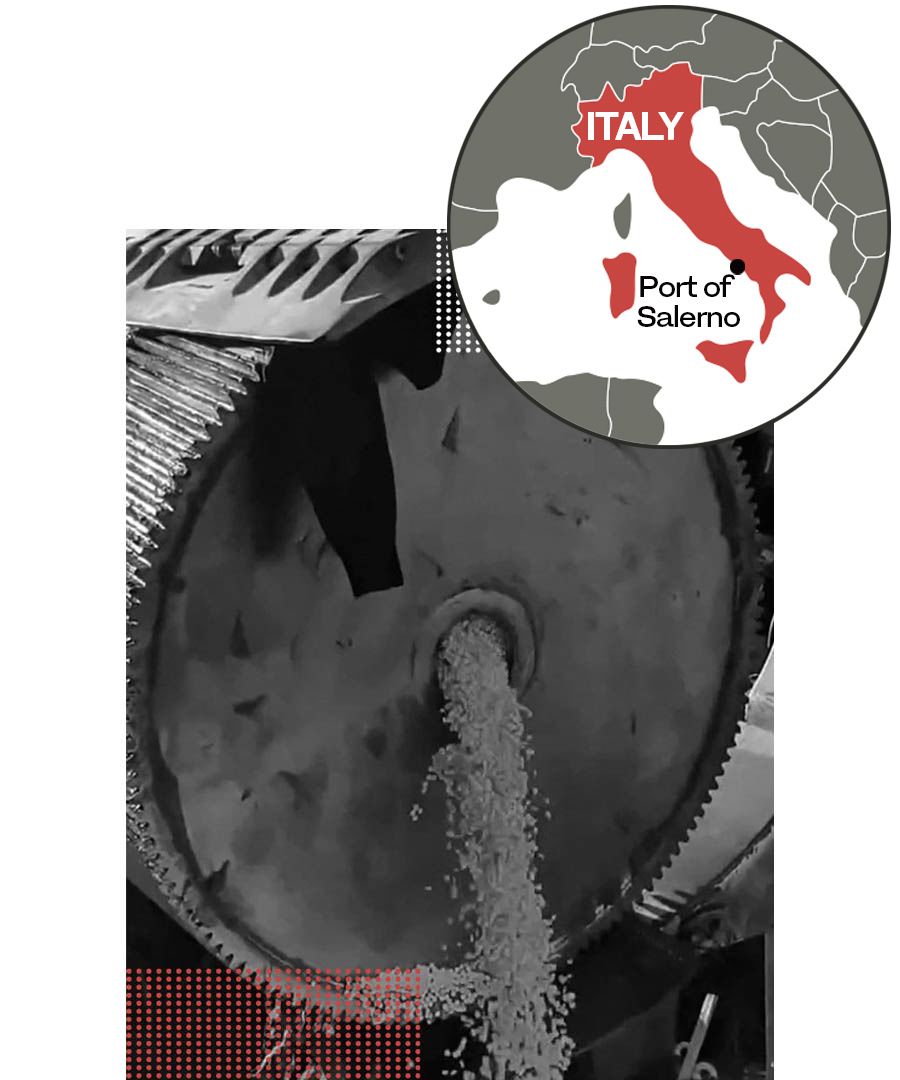
July 2020: Italian police seize 84 million Captagon pills at the Port of Salerno.
July 2020: Italian police seize 84 million Captagon pills at the Port of Salerno.
In February 2021, Lebanese customs officials intercepted a shipment of five million pills at the Port of Beirut hidden inside a tile-making machine, bound for Greece and Saudi Arabia.
In May 2021, Turkish customs officers at Iskenderun intercepted six million pills, bound for the UAE, and in November, Dubai customs officers discovered 80,000 Captagon pills hidden in the trunk of a car at Hatta checkpoint, on the border crossing with Oman.
Jordan, sandwiched between Syria and Saudi Arabia, has bigger problems than most, which it blames on the Syrian military and pro-Iranian militias operating in the south of Syria.
“Jordan has increasingly become a battleground in the fight to stem this illicit trade,” wrote Middle East analyst Gregory Aftandilian in a policy paper for the Arab Center Washington DC in September 2022.
“From Syria and Lebanon, Captagon pills are then usually smuggled overland to Jordan, and from there on to the Gulf states, although some shipments are also transported by air and sea, often hidden in or among other products.”
In 2021, Jordanian forces seized 15.5 million Captagon pills, but surpassed that total in the first four months of 2022 alone. After a series of violent incidents along the border with Syria, the Jordanian army changed its rules of engagement. The Jordan News Agency reported that in a major firefight in January 2022, guards “engaged and killed 27 drug smugglers after they tried to infiltrate the border from Syria under the cover of snow.”
The smugglers, the report added, “were backed up by armed groups . . . some of the smugglers were injured and fled back to Syrian territory.”
In November 2022, Jordanian security forces arrested 24 dealers across the kingdom in a single day and in a separate case in December two men, a Syrian and a Jordanian, were given lengthy prison sentences for an attempt to smuggle 1.9 million pills from Syria to Jordan in 2021.
Nowhere in the region is immune to the crisis. In December, Iraqi authorities destroyed six tons of drugs, including cannabis, cocaine and five million Captagon pills, which had been seized at the country’s borders.
In December the Port Khalid Customs Center in Sharjah, UAE, thwarted five attempts to smuggle in a tital of 142.73 kg of drugs, including half a million Captagon pills.
But for more than 20 years it has been Saudi Arabia that has been the major target of the drug smugglers. Regular reports by member states to the United Nations Office on Drugs and Crime show that between 2015 and 2019 Saudi Arabia seized by far the largest quantities of amphetamine tablets in the region, followed by Jordan and the UAE.
In 2019 alone, the Kingdom reported seizing almost 146 million tablets, dwarfing the amounts intercepted in Jordan (23 million), Kuwait and Lebanon (4 million each) and Iraq (600,000.)
In the past six years, Saudi authorities, fighting a battle of wits with smugglers resorting to ever more devious methods, have seized a total of 600 million Captagon pills at the country’s borders, including more in the first quarter of 2021 than in the whole of the previous two years.
Almost 120 million pills were seized in 2021, and in August 2022 alone the authorities intercepted a record single haul of 45 million pills.
However, such are the rewards that the smugglers keep trying — seizures of Captagon are regularly reported by Saudi Arabia's Zakat, Tax and Customs Authority.
One of the largest recent hauls was in October, when almost 4 million pills were discovered in a shipment of bell peppers in Riyadh, leading to the arrest of five suspects, in the capital and Jeddah. In November, 2 million pills were found hidden inside wooden kitchen planks in Riyadh, leading to four more arrests, and in December almost 3 million pills were intercepted in two attempts to smuggle the drugs in, through the Empty Quarter border with Oman and through the Haditha border crossing with Jordan.
The new year has brought no respite. Four days into 2023, the General Directorate for Drug Control reported that three Saudi nationals had been arrested after more than 3 million pills were discovered in Riyadh, hidden inside specially created compartments in a truck.
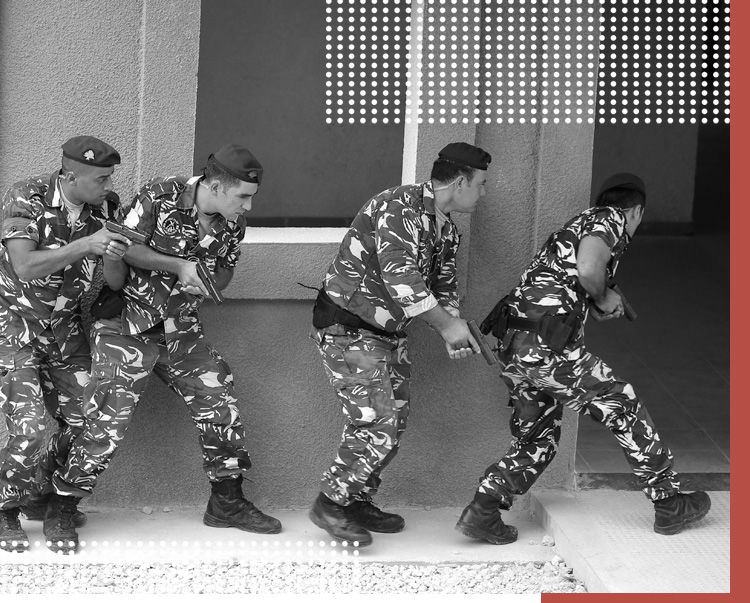
Lebanon’s Internal Security Forces have seized more than 5 million Captagon pills since the beginning of 2022.
Lebanon’s Internal Security Forces have seized more than 5 million Captagon pills since the beginning of 2022.
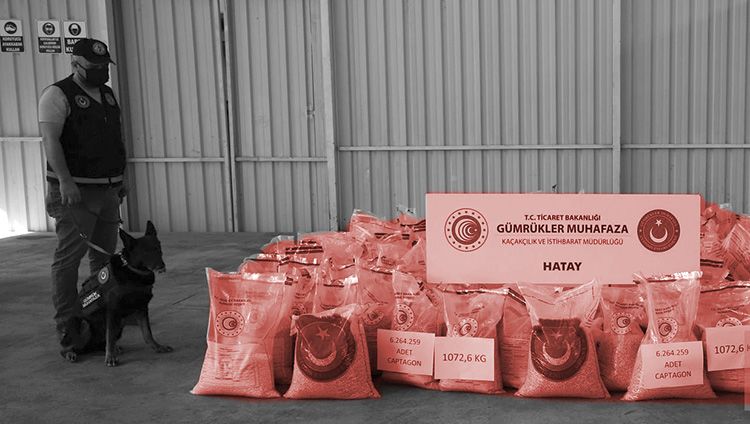
May 2021: Turkish customs officers at Iskenderun intercept 6 million pills, bound for the UAE.
May 2021: Turkish customs officers at Iskenderun intercept 6 million pills, bound for the UAE.
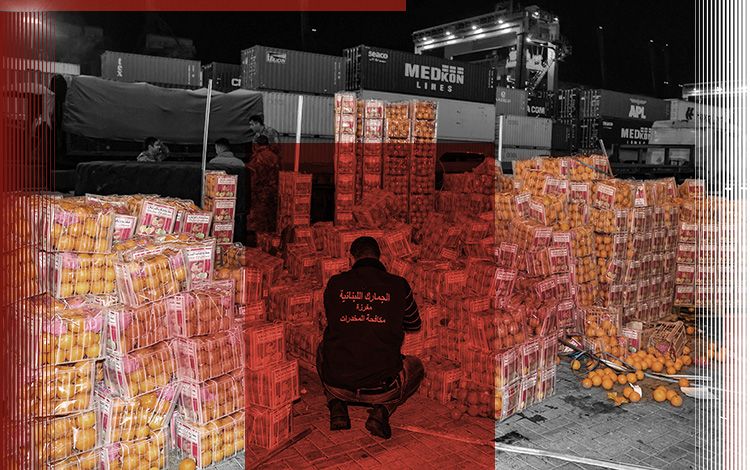
December 2021: Customs agents at the Port of Beirut seize 9 million Captagon pills, hidden in a shipment of oranges and bound for the Gulf. (AFP)
December 2021: Customs agents at the Port of Beirut seize 9 million Captagon pills, hidden in a shipment of oranges and bound for the Gulf. (AFP)
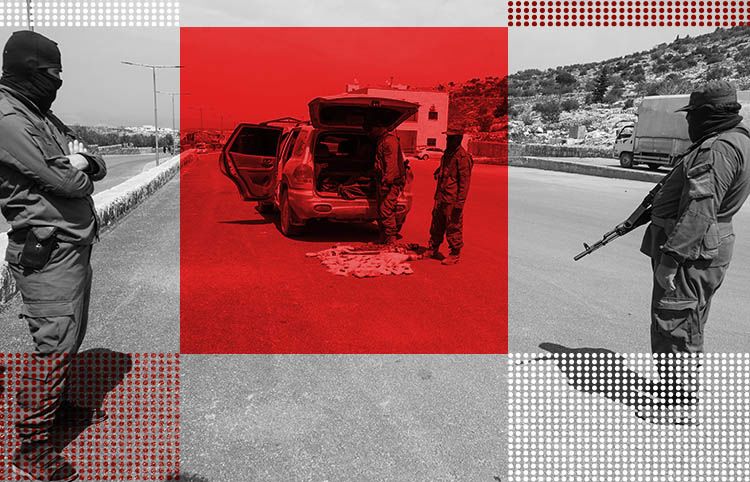
April 2022: Fighters with Syrian rebel group Tahrir Al-Sham seize a consignment of Captagon pills at a checkpoint in the west of Aleppo Governorate. (AFP)
April 2022: Fighters with Syrian rebel group Tahrir Al-Sham seize a consignment of Captagon pills at a checkpoint in the west of Aleppo Governorate. (AFP)
Battle on the borders
Armed with sophisticated X-ray machines, sniffer dogs and an intelligence network shared with its allies across the region, in the first quarter of 2021 Saudi Arabia seized more Captagon pills at its borders than in the whole of the previous two years combined.
“More than 190 million Captagon pills were seized in 2020 and 2021, in coordination and cooperation with the General Directorate of Narcotics Control, the General Directorate of Border Guards and other relevant entities,” said Majde Al-Sabi, security affairs adviser at the General Zakat, Tax, and Customs Authority — ZATCA.
“This coordination resulted in the General Directorate of Narcotics Control arresting those who were supposed to receive the seized drugs in the Kingdom,” he said.
Over the past decade, Al-Sabi said, ZATCA had intercepted “more than 782 million narcotic pills, in addition to more than 100,000 kg of other drugs, such as shabu (methamphetamine), heroin and cocaine, among other narcotic substances.”
Guarding the Kingdom’s borders is no easy task. Saudi Arabia shares land borders with eight countries: Jordan, Iraq, Kuwait, Qatar, the UAE, Oman, Yemen and — via the 25km-long King Fahd Causeway — Bahrain. Then there are the shorelines — 450 km on the Arabian Gulf and 1,700 km on the Red Sea, from the northern end of the Gulf of Aqaba to the Yemeni border in the south.
All border crossings, Al-Sabi said, were “at full readiness,” but some see more action than others. “Jeddah Islamic Port, Al-Haditha Crossing (on the Jordanian border), and King Abdulaziz Port in Dammam (on the Gulf) are at the top of the list when it comes to smuggling attempts,” he said.
Smugglers, he added, “seek to exploit everything to try to smuggle illegal substances into the Kingdom by exploiting food items, electronics, children’s toys and steel, in all their types and forms.
“For example, an attempt was thwarted recently, where Captagon pills were hidden inside an onion shipment, along with shipments of other food items. But the heroes of the customs are fully prepared and always ready to thwart such attempts.”
Those heroes include the men and dogs of the National K9 Center in Riyadh, which was set up in 1980 and today has more than 440 teams operating at 26 customs crossings, with more units being introduced in regional airports and ports.
The majority of the seizures of Captagon “were the result of the extraordinary teamwork carried out by the specialists and their K9s,” said Maher Rashid Al-Huaish, a senior trainer at the K9 center.
The men and their dogs “have a bond so strong to the point where they seem to be one. During the 26 years I have spent at the authority, I have noticed a significant bond between the K9s and their specialists. The handlers always get attached to them and the dogs pick up the behavior and character of their specialists and are very loyal to them.”
Blessed with millions more olfactory cells than humans, “dogs have very advanced abilities in terms of their senses. They have the ability to respond to and detect substances and contraband even while exhaling, a wide angle of vision, which makes them able to explore their surroundings even better, and a very strong sense of hearing.”
At the center, the dogs are trained to detect drugs, explosives, money, tobacco, and people — either dead or alive.
The success of the teams “cannot be attributed to one person, but rather to a system, and we are more than capable of confronting this menace,” said Abdullah Al-Salloum, director of the National K9 Center.
The dogs, said Al-Salloum, are trained to detect “five or six types of drugs and six or seven types of explosives, in addition to smuggled cash as well as tobacco and tobacco products.”
Accredited by the World Customs Organization as a regional center of excellence, the National K9 Center “aims to strengthen cooperation with regional countries in terms of providing training and exchanging expertise with experts.”
The dogs, said Al-Salloum, have an unerring sense when it comes to detecting contraband. On one occasion, K9 units were conducting a routine inspection of trucks at a land crossing when, instead of working its way along the line, one of the animals headed straight for the seventh truck.
“I thought that perhaps it was because it was in an open area, in the wilderness, and it was possible that a wolf or something there had caught the K9’s’ attention,” he said.
The handler tried to bring the dog back to the first truck, but again it headed straight for the seventh vehicle, and “that is when the handler took the matter more seriously.”
The truck was searched, and a large quantity of Captagon pills was discovered.
More often than not, the smugglers are ruthless gang members who resort to extremely devious and occasionally ingenious methods in attempts to bring millions of pills at a time into Saudi Arabia. Many are caught — between January 2021 and August 2022, Saudi customs officers and border guards seized more than 160 million Captagon pills.
What isn’t known, of course, is how many pills make it onto the streets of the Kingdom. But what is clear is the terrible damage the drug is doing to individuals, families and communities.
Horror stories associated with Captagon are commonplace, but these alone do not seem to discourage users.
“There’s someone I know, one night he took one too many Captagon pills and lost his sanity,” said an anonymous Captagon user from Baalbek who spoke to Arab News.
“You find him now walking the streets in a daze, he doesn’t know where he is, what he’s doing or who he is.
“They said he took 22 pills in one day after he had a fight with his parents. A week had passed by the time he sobered up completely, but then he couldn’t recognize anyone. He couldn’t and still doesn’t recognize himself.”
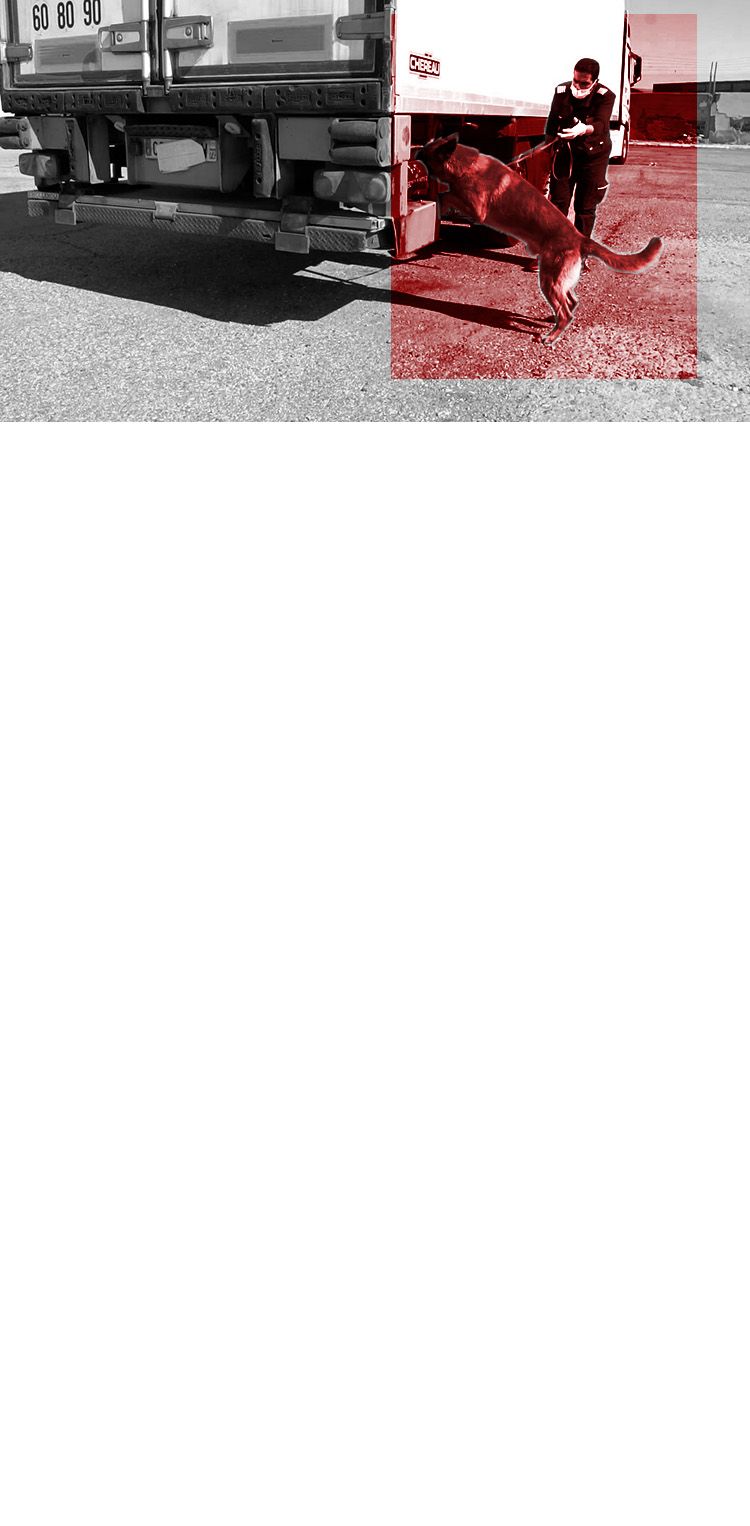
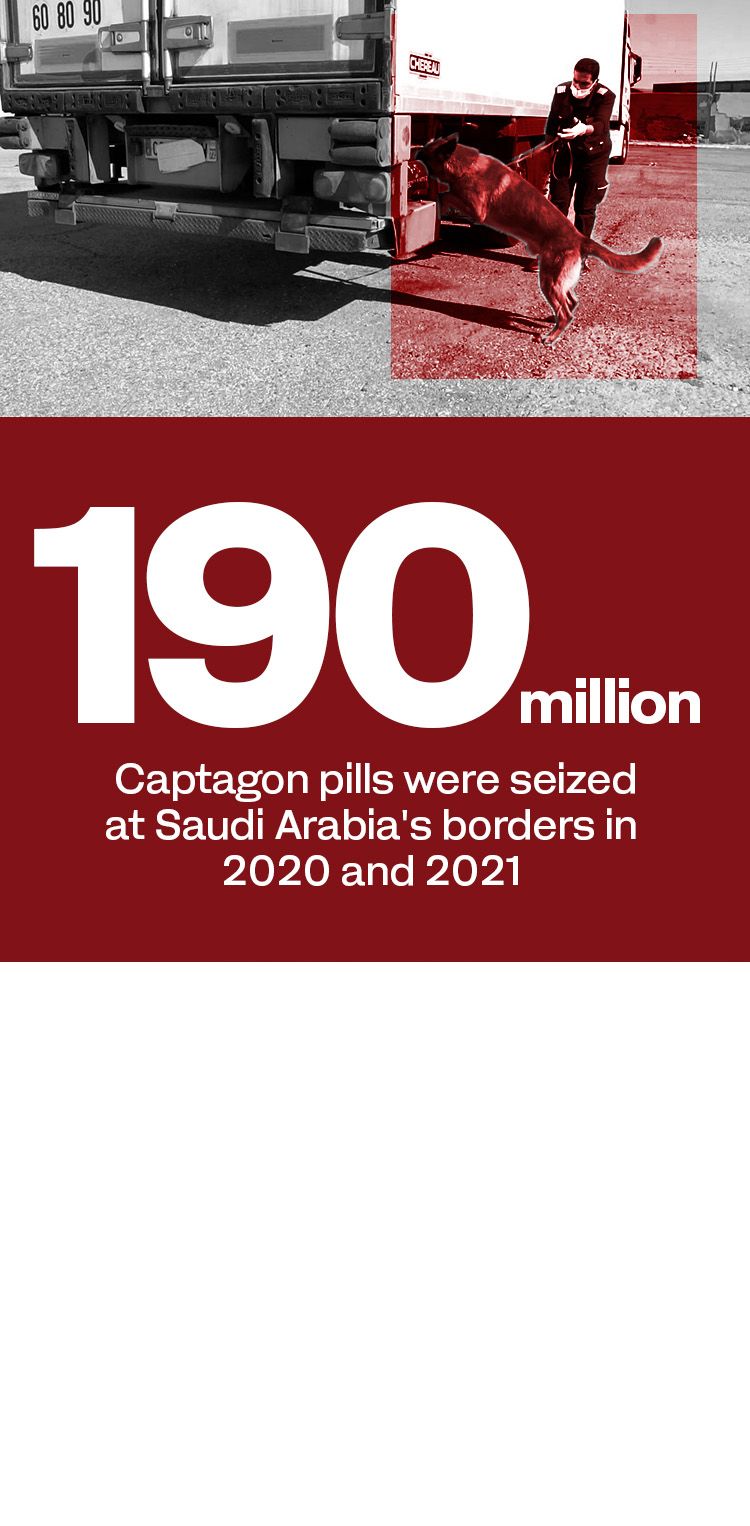
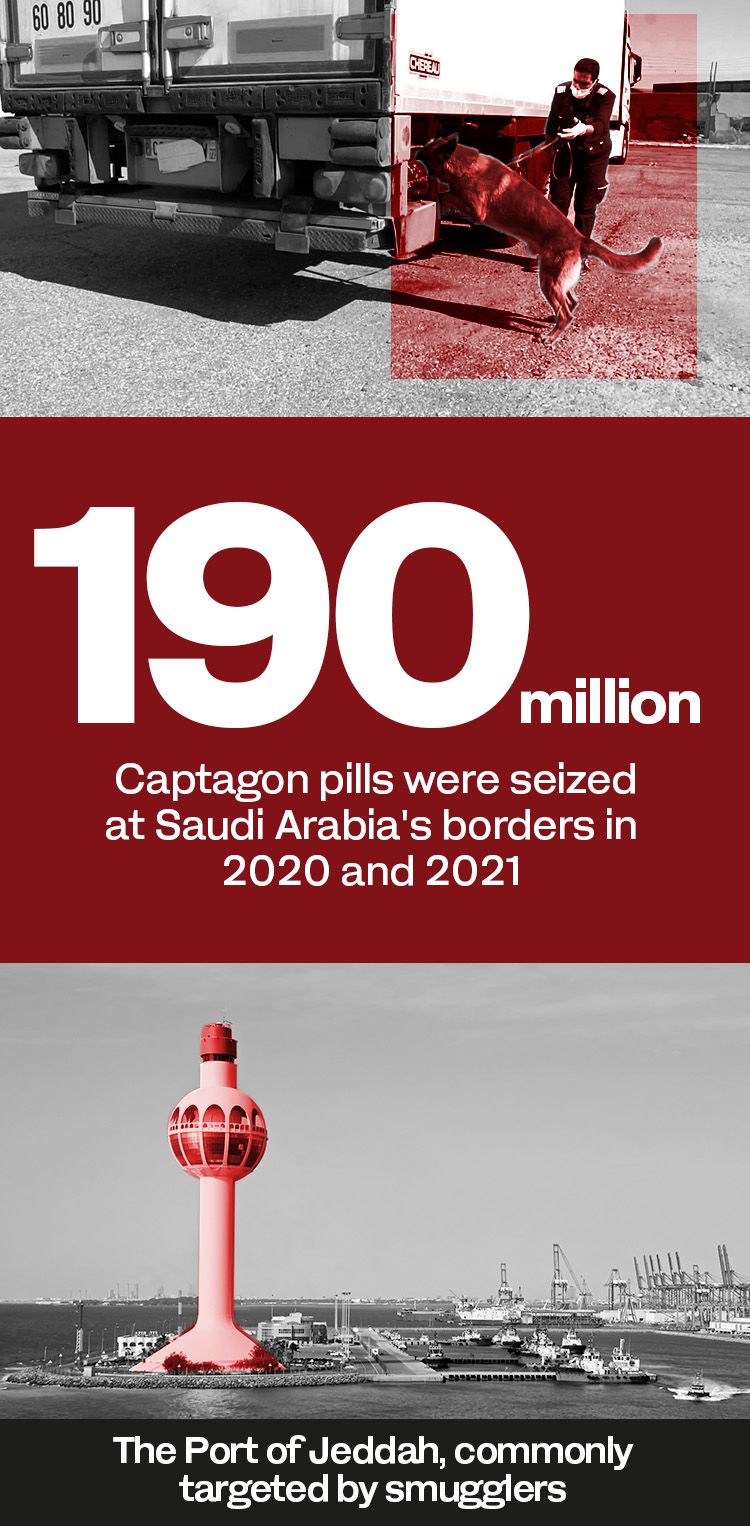
Picking up the pieces
Intercepting the drugs at the border is only half the battle against Captagon, which is also being fought by medical professionals at dedicated treatment centers across Saudi Arabia.
Saudi Arabia is well known for its tough line on drug smuggling and dealing. Under the Kingdom’s anti-narcotics and psychotropic substances laws, anyone found guilty of smuggling, importing, exporting or manufacturing such drugs faces the death penalty, although at the discretion of the court this can be commuted to 15 years or more in prison, with up to 50 lashes and a fine of not less than SR100,000 riyals ($26,700).
First-time drug dealers can be given up to 15 years in prison, a fine of at least SR100,000 and up to 50 lashes, but if they commit a second offense they risk the death penalty. Anyone in government service found guilty of drug trafficking faces up to 25 years in prison, or even death.
When it comes to users, however, the law takes an extremely progressive approach, stipulating that, provided the individual submits themself to “one of the clinics designated to treat drug addiction . . . to help him/her heal ... prosecution cannot be brought for use or addiction of narcotics or psychotropic substances.”
One such facility is the Kafa center in Riyadh, a subsidiary of the Kafa Society for Control of Smoking and Drugs in Makkah.
“The center offers educational, behavioral and skill-building programs, as well as medical care for recovering addicts through a variety of schemes,” said Ibrahim bin Ahmad Al-Hamdan, general director at Kafa.
“The center adopts a three-stage treatment plan, the first of which is the primary care stage, which runs for 45 days to ensure a patient’s stability. Then comes the aftercare, which comprises various programs running for three months.
“Finally, we provide extended care for up to two years, during which we ensure the continued improvement of a recovered drug addict.”
Data collected by Kafa treatment centers shows that the vast majority of addicts are men. For cultural reasons, “this scourge isn’t prevalent among women. Nonetheless, we at Kafa provide our services to everyone.”
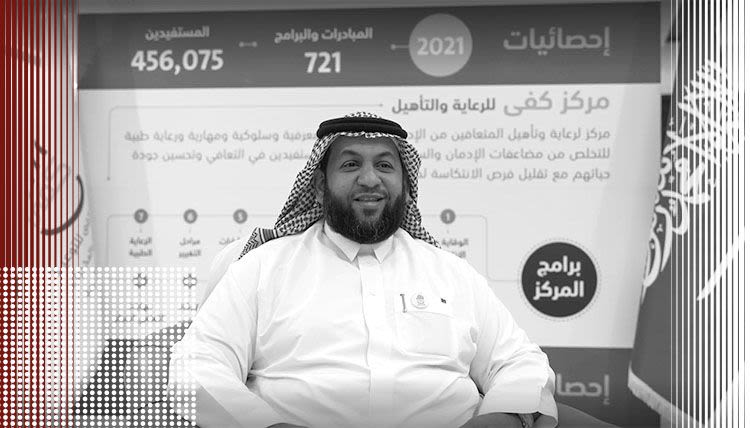
Ibrahim bin Ahmad Al-Hamdan, general director at Kafa rehabilitation center, Riyadh: “Prevention is better than cure.”
Ibrahim bin Ahmad Al-Hamdan, general director at Kafa rehabilitation center, Riyadh: “Prevention is better than cure.”
In addition to treatment programs, the Kafa society organizes awareness programs with various partner organizations, tailored for students at school and university, “to educate them on the dangers of narcotic drugs and on the help available to those who have been victims of addiction.”
The services offered by such centers across the country are one part of a three-pronged approach to battling the Captagon problem in the Kingdom.
“We all know that prevention is better than cure,” Al-Hamdan said.
“There are real government efforts, both preventative and educational, through the provision of educational programs focused on life skills to raise awareness at schools of the dangers of Captagon in particular, and narcotics in general, and the dangers of substance abuse.”
The Kingdom’s preference for treatment over punishment for addicts is typified by the work of the Saudi National Committee for Narcotics Control, which under the umbrella “Nebras” (Beacon), offers a broad range of services for addicts and their families, including a dedicated addiction counseling center, and can connect patients with treatment providers.
In October 2022, Nebras, working in partnership with several government bodies and private-sector organizations, launched “Stay Close,” a two-week campaign designed to protect children from the danger of addiction by raising awareness about the importance of family bonds in the battle against drug abuse.
“Stay close,” Nebras tweeted at the launch of the campaign, “and do not spoil the lives of your children by distancing yourself from them. Family bonding and your communication with them saves them from the danger and addiction of drugs.”
Nebras says that the average age at which drug-taking begins is between 13 and 18 years old, and that more than half of all cases of adolescent drug abuse are a result of families not paying enough attention to their children.
Other government departments are taking steps to combat addiction. In November 2022 the Saudi Health Ministry launched a campaign to improve the provision of addiction treatment services in 50 hospitals with psychiatric units, organizing introductory workshops and linking the units to the Saudi appointments app Sihhati and Seha Virtual Hospital, the first of its kind in the Middle East, connecting patients through a cutting-edge telemedicine portal to more than 150 hospitals.
The goal, said the ministry, is to provide easy access to addiction treatments, reduce the stigma, and improve the quality of the provided services. It is also “raising awareness about addiction — its dangers, complications, risk factors, causes of relapse, and treatment of withdrawal symptoms or the accompanying psychological symptoms, both in clinics and inpatient wards.”
Al-Hamdan, general director at Kafa, has a message of hope for addicts and their families.
“An addict is someone who’s ill and needs help,” he said. “Yes, there are a number of addiction cases. But thanks to the efforts of treatment centers and hospitals, addiction is not the end.”
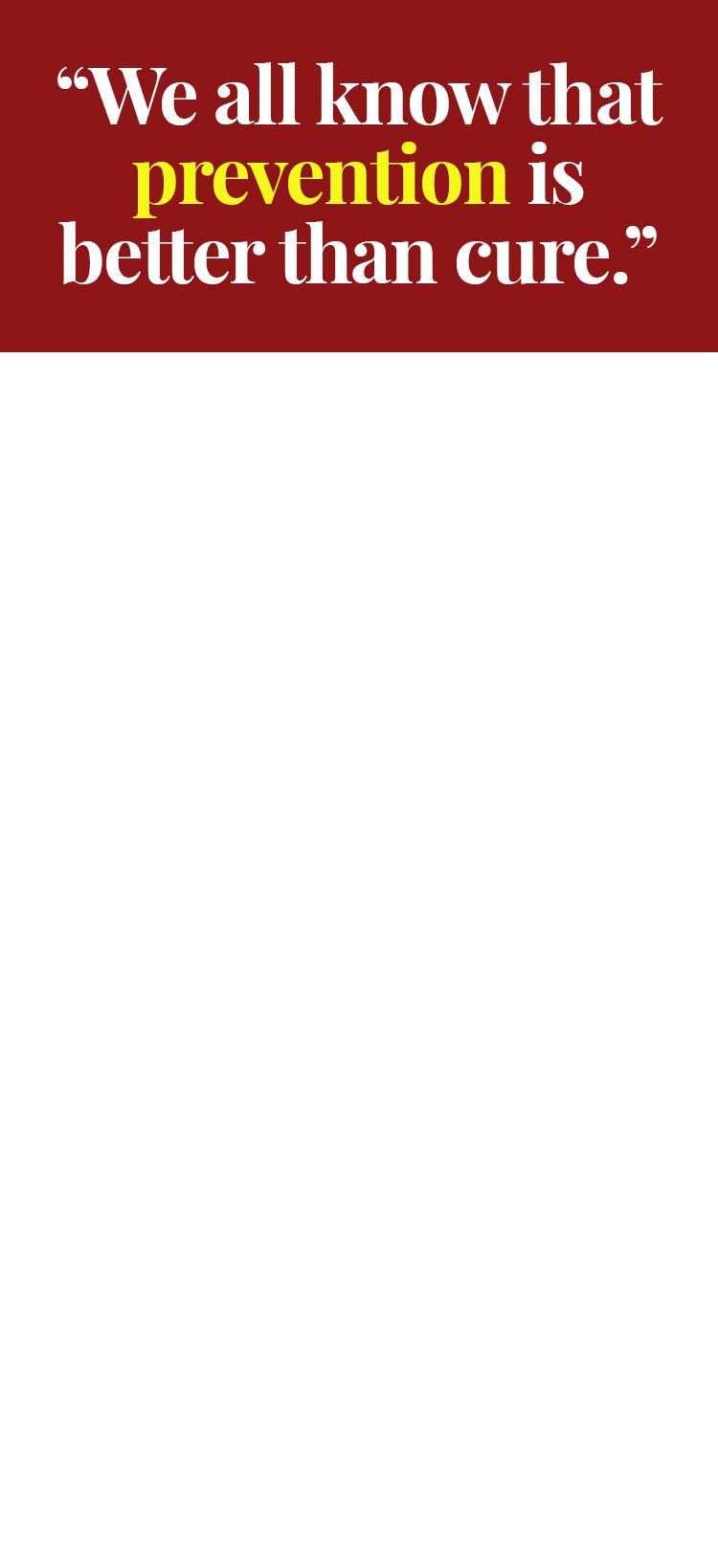
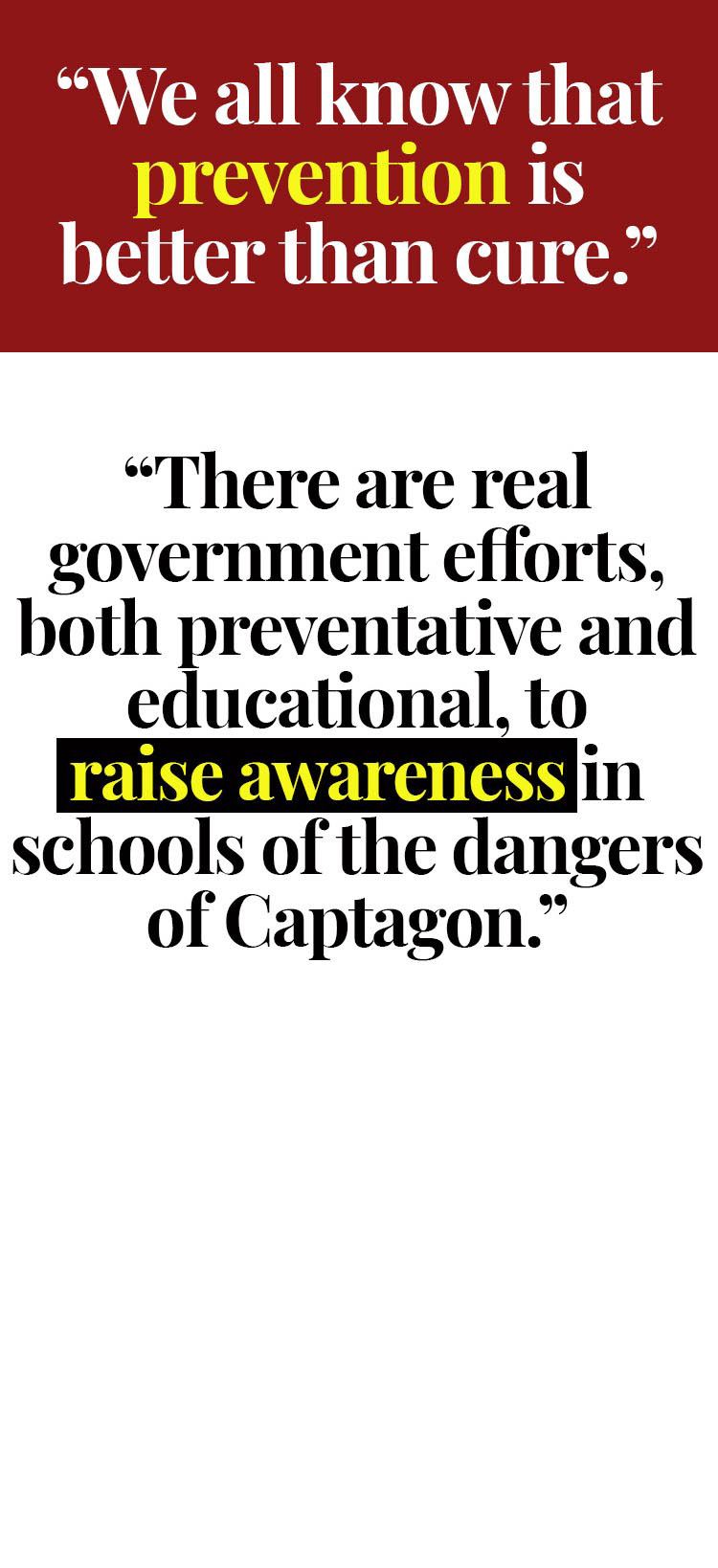
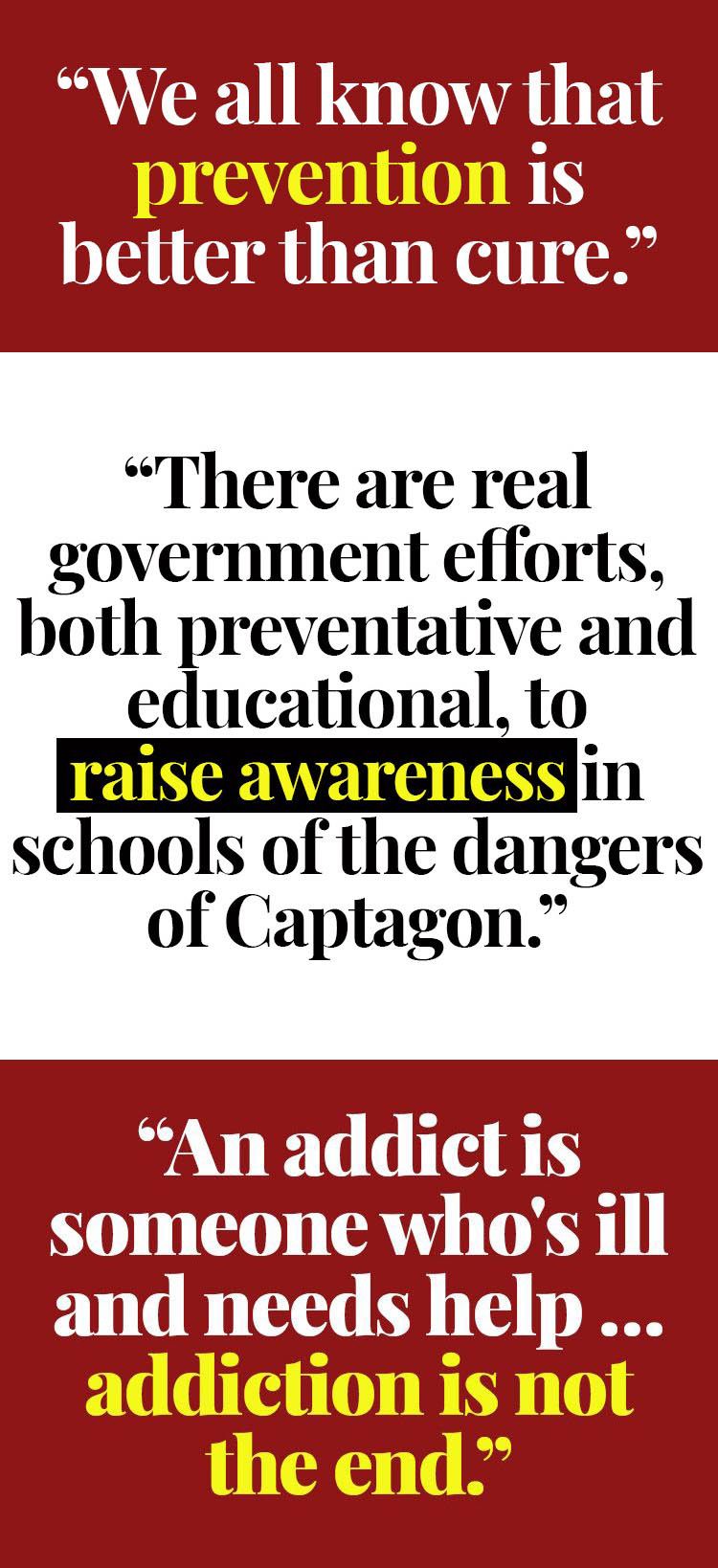
Credits
Writing & research: Jonathan Gornall, Leen Fouad, Anan Tello, Gabriele Malvisi
Interviews: Nadia Al-Faour, Mohammed AlSulami, Tariq AlThaqafi
Editor: Tarek Ali Ahmad
Creative director: Omar Nashashibi
Designers: Douglas Okasaki, Ador Bustamante
Graphics: Douglas Okasaki
Design consultant: Simon Khalil
Video producer: Hasenin Fadhel
Video editor: Ali Noori, Abdulrahman Fahad Bin Shulhub
Videographers: Firas Haidar, Abdullah Aljabar, Jamal Bin Mahfouth
Picture researcher: Sheila Mayo
Copy editor: Sandra White
Translators: Charbel Merhi, Cynthia Milan, Joy Geryes, Rima Barakat, Joelle Sleiman
Japan editors: Diana Farah, Akiko Iwata
Social media: Daniel Fountain
Producer: Arkan Aladnani
Editor-in-Chief: Faisal J. Abbas
